Business & Management
The Women RISE Project: Building Resilience among Adolescent Girls and Young Women in Artisanal Mining Communities through Transformative Research
Published
4 months agoon

The COVID-19 pandemic profoundly affected vulnerable populations, with adolescent girls and young women in unplanned artisanal and small-scale mining (ASM) settlements bearing the brunt of its impact. Already grappling with economic hardships and inadequate healthcare access, these communities faced intensified challenges during and after the crisis, further deepening the existing inequalities.
To address some of these pressing concerns, the Women RISE research Project was launched to explore the economic and health impacts of COVID-19 on adolescent girls and young women in unplanned mining communities, examining their coping mechanisms and resilience during and after the pandemic.
The Women RISE project titled, “Economic and Health Impact and the Resilience of Last Mile Populations in Artisanal and Small-Scale Mining Unplanned Settlements in Sub-Saharan Africa Before, During and After COVID-19,” focused on Ghana and Uganda as case studies.
The project team consists of the following researchers; Betty Kwagala, Makerere University (Principal Investigator), Lydia Kapiriri, McMaster University, Canada (Co-Principal Investigator), Lydia Osei, University of Ghana (Co- Investigator), Stephen Wandera, Makerere University (Co- Investigator), Fred Ngabirano, Ministry of Gender, Labour and Social Development, Uganda (Co- Investigator/Decision maker), Deborah Mensah, Northern Empowerment Agency- Ghana (Co- Investigator) and Miriam Mutabazi, Uganda Christian University (Co- Investigator)
The composition of the research team is testimony that the two-year collaborative project brought together leading institutions from Canada, Uganda, and Ghana to assess these challenges and develop targeted interventions to enhance future crisis preparedness, with support from the International Development Research Center (IDRC).
To share these critical findings and explore policy implications, an end of project dissemination workshop was convened on 13th March 2025 bringing on board stakeholders comprising distinguished researchers, government representatives, project participants and civil society leaders for an insightful discussion on translating research into action, ensuring that adolescent girls and young women in ASM communities are better equipped to withstand future crises. Representatives from the following Ministries actively participated in the dissemination workshop: Ministry of Gender, Labour and Social Development, the Ministry of Local Government, the Ministry of Health, and the Ministry of Energy and Mineral Development.
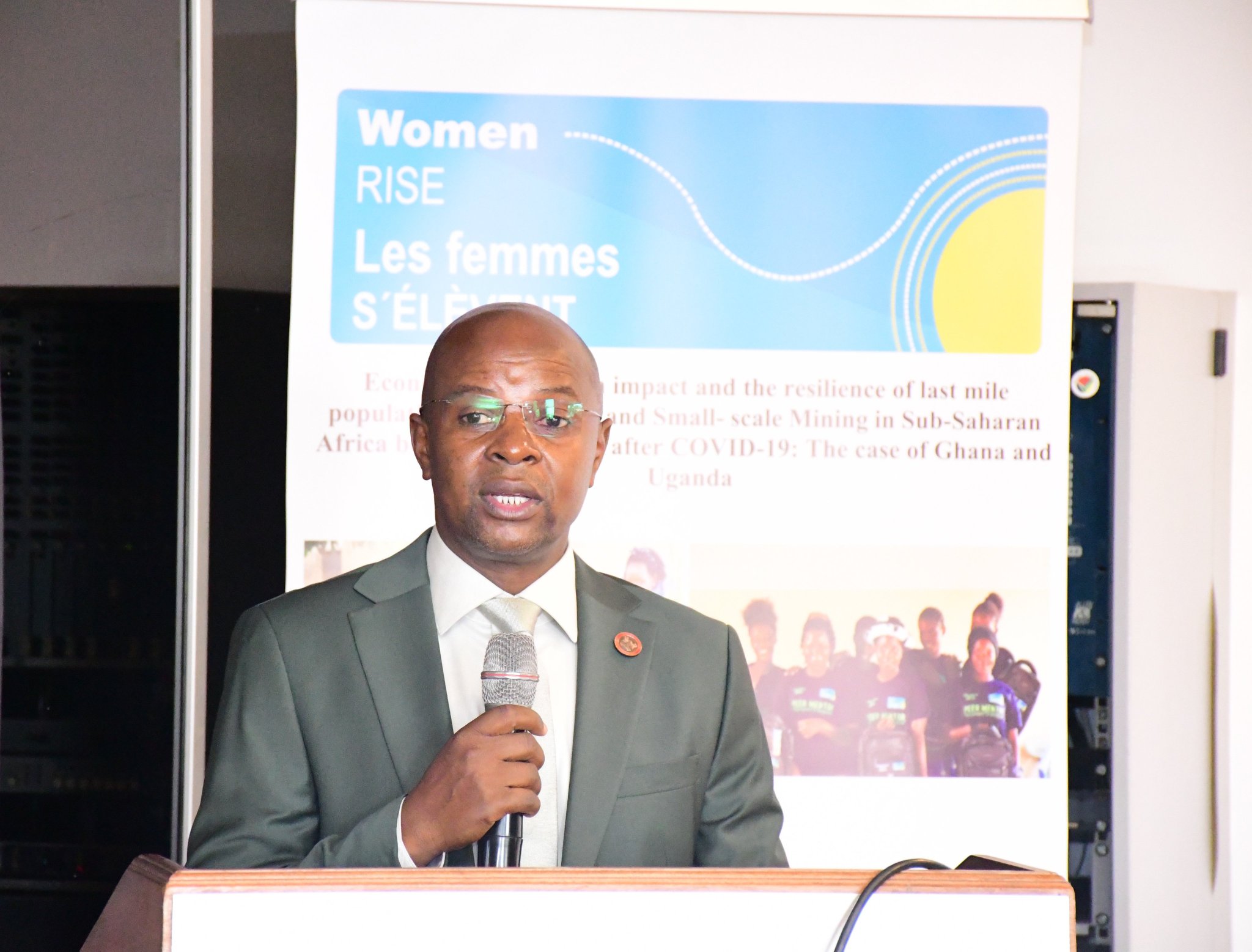
Officiating at the dissemination workshop, the Principal of the College of Business and Management Sciences (CoBAMS) at Makerere University, Prof. Edward Bbaale commended the project team for undertaking a study that highlights the pressing economic and health challenges faced by adolescent girls and young women in artisanal and small-scale mining communities in Uganda and Ghana before, during and after the CoVID-19 pandemic. He underscored the critical role of evidence-based research in shaping policies and programs that foster sustainable development.
“This collaborative project not only brings to the forefront the critical economic and health challenges faced by adolescent in the small scale mining sectors in both Uganda and Ghana, but also highlights their remarkable resilience before, during, and after COVID-19 pandemic. The work you have undertaken transcends national boundaries, reinforcing the value of international partnerships in tackling shared challenges. It is my great honor and privilege, to officially open this important workshop,” the Principal said.
Prof. Bbaale explained that research projects such as the Women Rise project, Universities play a vital role in identifying gaps and generating knowledge to guide policy and programming. He emphasized that having government, civil society, and the private sector actively engaged in research efforts significantly enhances the chances of translating findings into meaningful action. He stressed that the results of this research would be practical, policy-relevant, and instrumental in opening up more opportunities for future collaboration
“I am pleased that this project contributes meaningfully to Makerere University‘s research-led agenda, where evidence-based inquiry drives policy formulation, program design, and sustainable development. As a university, we take pride in pioneering collaborations between academia, government, and civil society, ensuring that research findings translate into actionable solutions for our communities,” he stated.
Beyond being a platform for sharing research findings, Prof. Bbaale said that the dissemination workshop serves as a critical space for dialogue among stakeholders and exploring avenues for scaling up research insights into impactful interventions. He noted that such engagements are essential in ensuring that vulnerable populations, such as adolescent girls and young women in small-scale mining communities, receive the support they need to build resilience and improve their livelihoods.
The Women RISE project created awareness of the challenges faced by adolescent girls and young women in mining areas. Some of these included: dropping out of school, early pregnancies, exposure to sexual practices and intimacy at a very early age, contracting of HIV/AIDS and other sexually transmitted diseases and gender based violence.
Focusing on the health risks/challenges in artisanal and small-scale mining (ASM), Dr. Stephen Wandera, an academic member of staff at Makerere University College of Business and Management Sciences stated that the rudimentary approaches to mining without protective gear expose adolescent girls and young women to mercury and dust, while men involved in the extraction are exposed to dangerous gases and dust.
“Nearly 97% of adolescent girls and young women engage in gold ore processing using mercury without personal protective gear, which exposes them, and sometimes their children to health hazards,” he said.
Dr. Wandera shared that 28% of the women reported mercury-related health issues, including fatigue, stress, headaches, muscle and joint pain, numbness, liver problems, tremors, skin rashes, respiratory illnesses like TB and, in some cases, the birth of children with congenital defects among ASM workers, with Central Uganda being a key area of concern.
“While there are policy guidelines in place, having a policy is one thing, but following and properly implementing those guidelines is another. Unfortunately, most workers operate without personal protective equipment, exposing themselves to serious health risks. The challenge is that, as humans, we often tend to overlook the dangers if the effects are not immediately visible, assuming that everything is fine. However, this lack of protection can have long-term, detrimental health effects,” Dr. Wandera said.
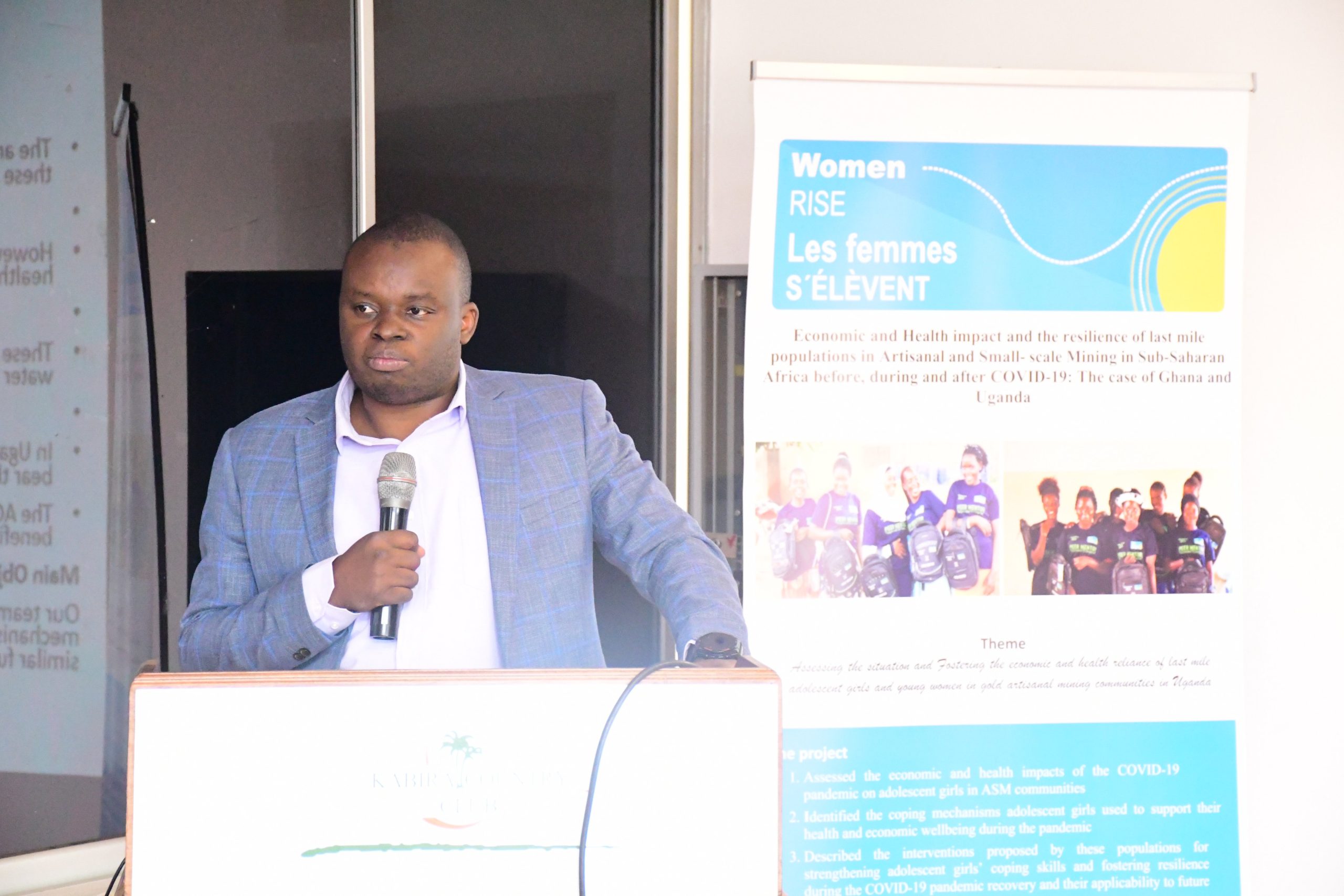
Dr. Wandera pointed out that miners in the Eastern region continue to use mercury, leading to the contamination of water sources. The health risks, he warned, extend beyond miners to entire communities, as contaminated water from mining sites drains into swamps where people cultivate rice and vegetables, posing a major public health threat.
“Mining runoff is contaminating both soils and water bodies. We visited a site where ore was being processed, and the wastewater was flowing directly into a swamp. Some of this water reached areas where people were growing rice and vegetables. As a result, these individuals will eventually consume crops contaminated by the runoff. This situation poses a significant disaster waiting to happen,” Dr. Wandera warned.
Dr. Wandera outlined key recommendations to mitigate risks in artisanal mining, including strengthening coordination with the Ministry of Health and integrating mental health support in affected areas. He stressed the importance of enforcing occupational health and safety regulations while working towards the sector’s formalization. Additionally, he advocated for establishing effective monitoring systems and conducting regular inspections to enhance mining safety. He also recommended equipping miners with resources on safer techniques and alternative technologies, implementing education and training programs on the dangers of mercury, and fostering multi-sectoral collaboration at national and local levels to address environmental, occupational, and public health concerns.
Dr. Miriam Mutabazi, Co- Investigator from Uganda Christian University presented critical findings on the health and well-being of young women in Uganda’s artisanal and small-scale mining (ASM) sector. She stressed the urgent need to address sexual and reproductive health challenges in these communities, emphasizing that economic vulnerability often compels young women to engage in high-risk behaviors, exposing them to significant health risks.
She noted that the study revealed a troubling trend where adolescent girls and young women engage in risky sexual practices, often in exchange for work opportunities, cash, or gold. “We realized that transactional sex and the temporal nature of relationships lead to multiple sexual partnerships, and this is very common in the mining settings. We also found that although the reports on sexual violence were low, interaction with the different participants revealed that there was actually a lot of gender-based violence, including sexual violence,” Dr. Mutabazi explained.
The findings indicated that 28% of the young women who had ever had sex had multiple sexual partners in the past year. These behaviors, she said, compounded by widespread substance abuse, have led to alarming rates of sexually transmitted infections (STIs), with 40% of respondents reporting STI transmission.
She highlighted that the most vulnerable young women for instance those with lower wages, limited economic opportunities, and histories of sexual violence—were at the highest risk of negative reproductive health outcomes. Despite the relatively high use of modern contraceptives at 69%, adherence remained a major challenge, with inadequate access to family planning counseling and education.
In response to these findings, Dr. Mutabazi called for urgent action to protect and empower young women in the mining sector. She emphasized the need for a multi-stakeholder approach involving government, NGOs, and local leaders to strengthen health services and education in mining communities. Among the key recommendations was the prioritization of artisanal miners as a high-risk population for STIs and HIV.
Dr. Mutabazi proposed a holistic intervention strategy that includes raising awareness on behavioral change, promoting alternative income sources to reduce transactional sex, preventing sexual violence, and advocating for safer sexual practices and committed relationships. She emphasized the need to expand access to youth-friendly reproductive health services, particularly through mobile clinics that reach young women directly at their workplaces. Additionally, she called for increased investment in family planning services, enhanced health education on the dangers of mercury exposure in mining areas, and the revitalization of a multi-sectoral approach that actively involves mining host communities.
Expounding on the health hazards, Prof. Betty Kwagala, an academic member of staff at Makerere University College of Business and Management Sciences informed the participants that most women in the mining areas carry their children to work, which also exposes the children to health and occupational risks.
Prof. Kwagala who is the Principal Investigator-Women RISE project noted that although the adolescent girls and young women faced health challenges, the most driver into this unfortunate scenario, were the economic factors.
She explained that when the adolescent girls and young women were trained and financially empowered through seed funding, the majority stopped going to the mining areas. “The adolescent girls and young women formed saving groups, became entrepreneurs, some went back to school, while others created alternative sources of income,” she said. In addition, the financially empowered adolescent girls and young women were able to transform their lives and children, uplift their families, friends and communities in general.
Presenting the gender dynamics in Artisanal and small-scale mining (ASM), as well as piloted interventions and their outcomes, Prof. Kwagala revealed that artisanal mining serves as an economic lifeline for many families across Uganda. She highlighted that these communities present significant challenges, particularly for young women and adolescent girls, who face gender-based disparities and reproductive health risks.
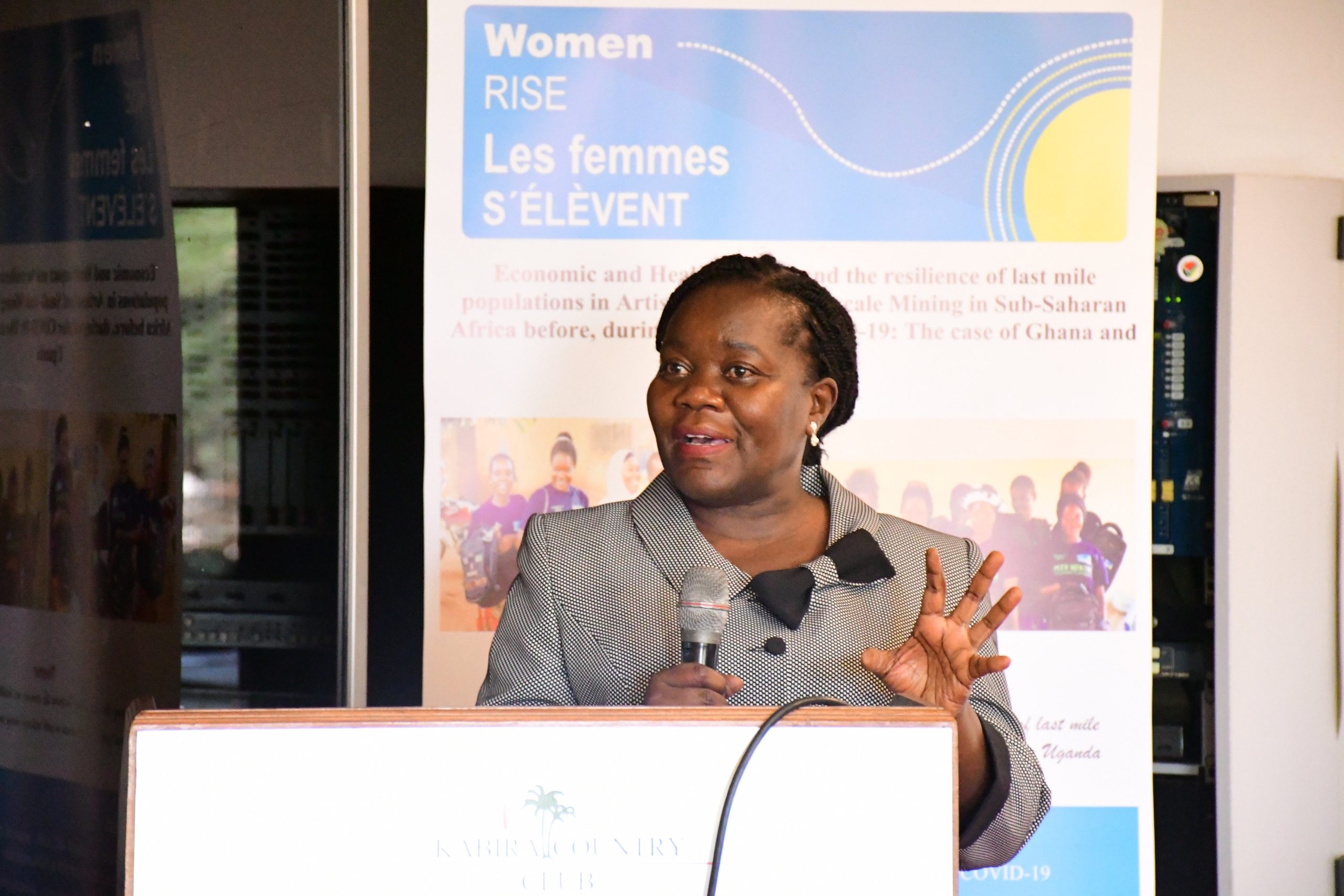
Despite their significant contributions, Prof. Kwagala said that women in artisanal mining remain marginalized. “Women are often relegated to low-paying and labour-intensive roles, such as panning and carrying ores, while men dominate the more lucrative aspects of mining. This limits women’s economic advancement and reinforces a cycle of poverty and dependence,” she said.
The findings revealed that, beyond economic marginalization, women in mining communities face an increased risk of gender-based violence. Their vulnerability is further aggravated by the absence of formal labor protections and legal recourse, highlighting the urgent need for policymakers and community leaders to take proactive measures to address these challenges.
Young women and adolescent girls in mining areas frequently encounter significant reproductive health risks. Limited access to healthcare services and inadequate sexual health education contribute to high rates of early pregnancies, unsafe abortions, and sexually transmitted infections (STIs), including HIV/AIDS. Additionally, sexual exploitation is prevalent, with many women subjected to coercion and harassment in exchange for economic survival.
As a result, Prof. Kwagala emphasized the urgent need for improved healthcare infrastructure and awareness campaigns to promote safe reproductive health practices. Strengthening access to contraception, maternal healthcare, and counseling services would be a pivotal step in addressing these challenges.
Another critical issue affecting young women in mining communities is the lack of educational opportunities. Prof. Kwagala disclosed that many adolescent girls drop out of school due to financial hardships, early pregnancies, or the need to contribute to household incomes. Without proper education and vocational training, they remain trapped in exploitative labour conditions with little hope for economic mobility.
To break this cycle, Prof. Kwagala called for community-driven initiatives that provide skills training, scholarships, and mentorship programs. Equipping young women with alternative income-generating skills can empower them to seek better economic opportunities beyond the mining sector.
Prof. Kwagala called for urgent action from the government, civil society, and private stakeholders to improve conditions for young women in artisanal mining. She recommended strengthening labor laws to ensure gender equity and protect women from exploitation, establishing mobile clinics and reproductive health education programs, and creating financial literacy and entrepreneurship initiatives to help women diversify their income. Additionally, she emphasized the need for gender sensitization programs to challenge harmful cultural norms and reduce gender-based violence. She also underscored the importance of advocating for increased resource allocation to adolescent and youth programs at all levels, supporting collaborative efforts to regulate excessive alcohol and drug abuse, establishing rehabilitation centers where feasible, and implementing interventions that engage male miners in promoting sexual behavior change and responsible parenthood.
Testimonies from adolescent girls and women empowered by the Women RISE project:
This being the end of the project dissemination, the participants listened to powerful testimonies from some of the adolescent girls and young women whose life was positively transformed through the Women RISE project. The transformation has had multiplier effects extending to uplifting the livelihoods of children, families and communities, where these girls and women conduct their work.
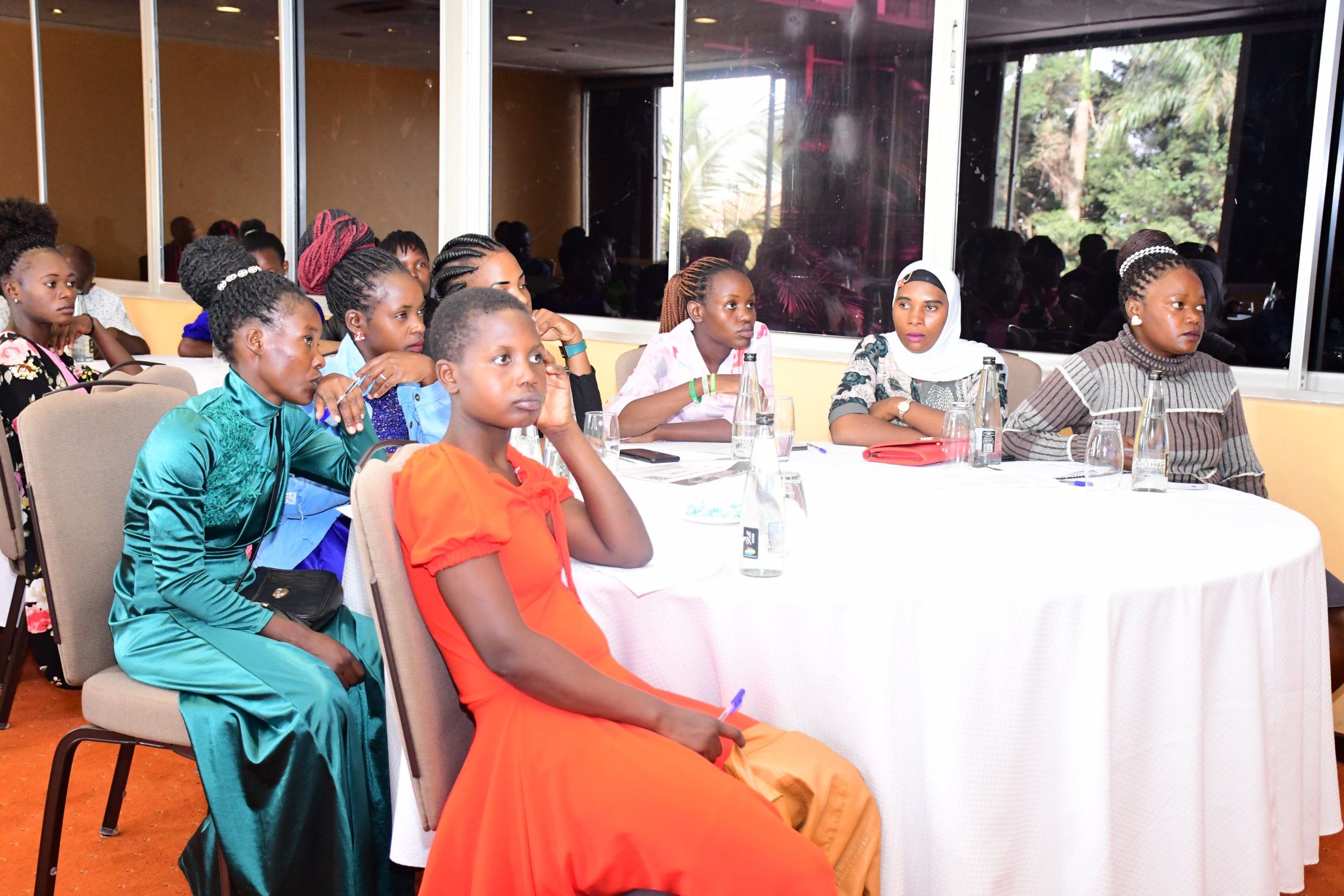
“We were monitored, trained in financial literacy and saving, entrepreneurship and equipped with life skills. We have created alternative sources of income. We have been transformed and empowered to lead better lives,” testified some of the adolescent girls and young women amidst applause from the stakeholders.
One participant emphasized that the support from partners and stakeholders is crucial for sustaining this momentum. It was disclosed that plans are already in place to expand the reach of the project, to integrate community health and education systems, and address new challenges that may arise in these rapidly growing districts.
Courtesy of the Women RISE project, the young people speak with confidence. They are in position to speak publicly and advocate for the needs of their peers. Many are making informed decisions about their lives, choosing to abstain from unprotected sex, using family planning methods, and making more assertive decisions about relationships. One participant mentioned, “I have learned that protecting my life is essential. I don’t go with anyone. I ask myself, ‘Who am I going with? What is his health status?”
Another young person shared, “This program changed my life. I was tested for HIV, and I am now confident in my decision not to engage with any man before knowing his status. Abstinence is my choice.”
What does this say about resilience? These young people have demonstrated remarkable growth and are now capable of standing resiliently in case of future crises. They have learned how to manage businesses, with many having multiple income streams. One notable success story is a young person who, after dropping out of school due to teenage pregnancy, financed her child’s delivery using proceeds from her business and she testified that she went back to school to complete her studies.
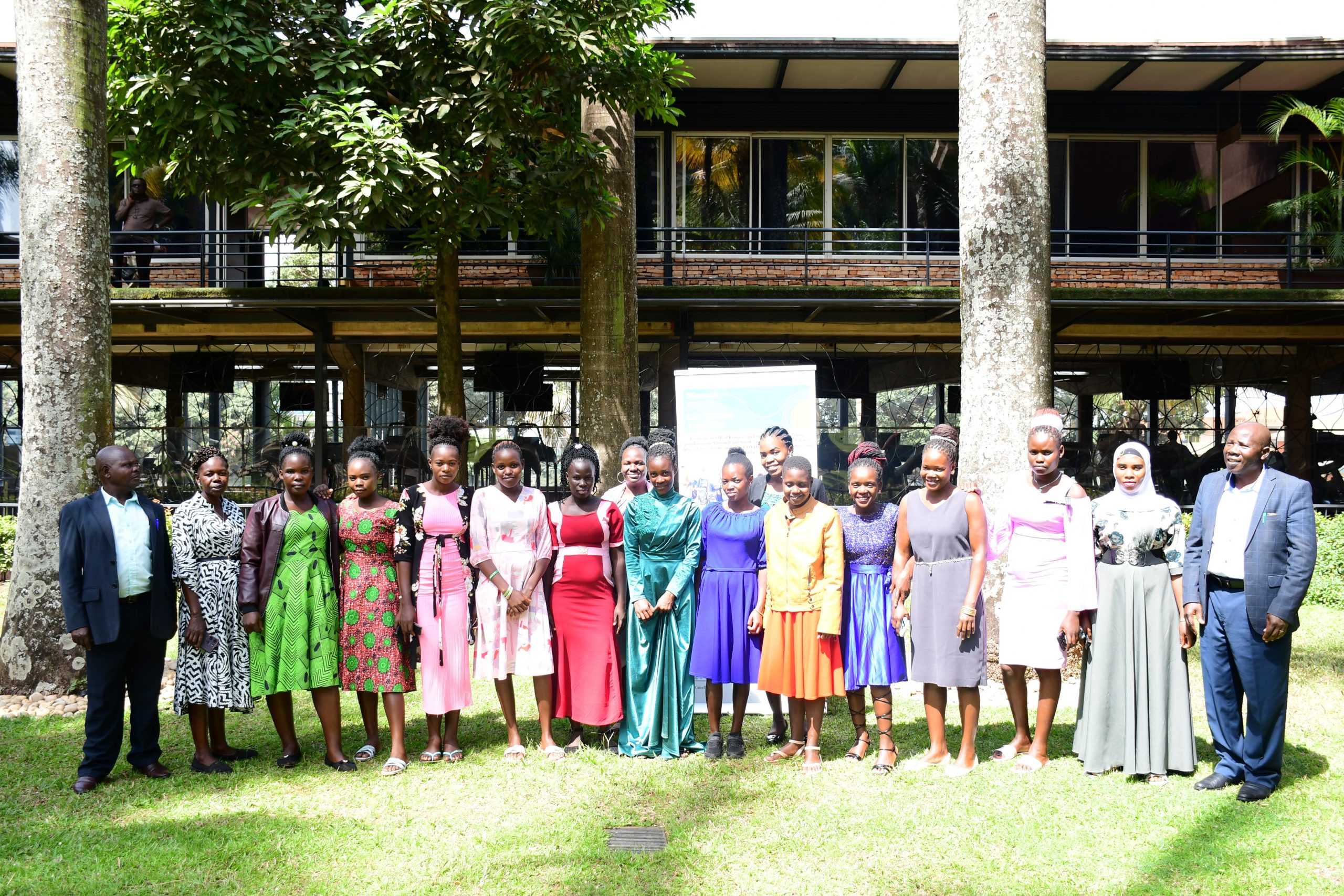
Peer mentorship has contributed to both personal and community resilience. Through these programs, young people have built self-esteem and empathy while advocating for others. One peer mentor said, “I have made many new friends. Even older people trust me, and I am able to help them, even escorting them to health facilities when necessary.”
Initiatives being undertaken by the Ministry of Gender, Labour and Social Development:
Addressing the stakeholders, Mr. Fred Ngabirano, Commissioner for Youth and Children Affairs at the Ministry of Gender, Labour and Social Development highlighted the power of grassroots transformation in fostering economic and social development.
He emphasized the commitment of the Government of Uganda to addressing social challenges and creating sustainable opportunities for young people and women in vulnerable sectors. He said that among the various initiatives under the Ministry’s mandate is the Juakali Center, which plays a crucial role in identifying and supporting women and young people in their economic journeys. “Once we organize groups of young people, we collaborate with Juakali to provide them with opportunities,” he explained.
As the project beneficiaries shared their transformational experiences, Mr. Ngabirano highlighted key lessons drawn from their testimonies. He emphasized that transformation is not solely reliant on financial aid, but rather on effective strategic planning, capacity development and resource management.
“Some individuals have received venture capital funds such as Youth Livelihood Programme, but have not made significant progress. This raises an important question—what is the key to success? The answer lies in effective financial planning and passion-driven work; it is about how well you plan and utilize what you have,” he remarked.
The Commissioner emphasized the importance of passion in professional and entrepreneurial success, saying, “If someone lacks passion for what they do, no amount of facilitation will drive success.” He thus lauded the young entrepreneurs who have followed their passion—whether in hairdressing, the grocery business, or other trades—and have, as a result, seen remarkable progress in their endeavors.
Mr. Ngabirano called for prioritizing human resource development as a means to transform people. He elaborated that investing in developing human potential should be a key focus. As the government continues to collaborate with academic institutions and grassroots organizations, Mr. Ngabirano stated that the future of youth and women empowerment remains promising.
Strategies being undertaken by the Ministry of Health:
Dr. Allan Kasozi from the Division of Adolescent Health at the Ministry of Health highlighted the pressing health challenges faced by young people, particularly those engaged in artisanal mining. He stressed the urgent need for targeted interventions to protect vulnerable youth working in hazardous conditions. Dr. Kasozi revealed that the Ministry of Health is finalizing the Adolescent Health Hosted Implementation Plan, a comprehensive strategic document that will guide adolescent health policies and interventions for the next five years. He underscored the importance of targeted service delivery, ensuring that healthcare efforts effectively reach both remote areas and the most at-risk populations.
Dr. Kasozi expressed his deep appreciation for the resilience and hard work of all stakeholders involved in the Women RISE project research, acknowledging the critical insights it has provided. He emphasized that while policymakers may not always have the opportunity to closely observe the daily realities of young miners, this research has shed light on crucial issues that demand immediate attention.
“The findings from this study, alongside the voices of young people, have been incredibly enlightening. These insights will play a pivotal role in shaping our strategies at the Ministry of Health to effectively tackle the challenges faced by adolescent populations, particularly those in vulnerable sectors like artisanal mining,” he stated.
He credited the project research team for their invaluable contributions, noting that their work provides vital evidence to inform better health planning for Uganda’s youth. “This research presents an opportunity for us to lead with informed solutions. It reinforces the need for a multi-faceted approach to adolescent health, ensuring that young people, regardless of their circumstances, receive the care and support they need.”
Contribution from the Ministry of Local Government:
Mr. Rashid Biruma from the Ministry of Local Government who represented the Commissioner for Local Council Development, Mr. Swizin Mugyema stated the critical role of research in addressing national challenges. He acknowledged the existence of numerous problems facing the country and highlighted that the identification of specific issues through research is crucial in finding solutions. He noted that the workshop had provided valuable insights into the scale of the challenges, which extend beyond the specific areas being discussed.
One major issue raised during the workshop was the problem of child labour in mines. Mr. Biruma referred to this as a significant concern, particularly due to its association with crimes and children in conflict with the law. He praised the Ministry of Labour, Gender, and Social Development for its efforts in rehabilitating children involved in such activities, particularly through diversion programs aimed at reintegrating them into society.
“Child labour is associated to various related issues, including crime and children in conflict with the law. This is a critical issue that requires urgent attention, and we must explore ways to address and redress it. We are grateful for the support from the Ministry, which is assisting us, particularly through diversion programs aimed at rehabilitating children involved in criminal activities,” he said.
In addition to tackling child labour, Mr. Biruma highlighted the importance of leadership, particularly at the local government level. He reiterated that the Ministry of Local Government would continue ensuring compliance with legal frameworks and enforcement of rights.
Education, both formal and civic, was another point of emphasis. He encouraged the use of established community structures to promote civic education, stressing that awareness and community engagement are crucial to the success of these initiatives. He also urged the dissemination of information to local government officials to ensure compliance with community engagement strategies.
Presentation of findings on sexual behaviours of young male artisanal miners in Kassanda District:
In a study conducted by Ms. Patience Natwijuka, a Master of Science student funded by the project and her team at Makerere University, critical insights have been revealed regarding the sexual behaviors and factors influencing consistent condom use among adolescent and young male artisanal miners in Kassanda District, Central Uganda. The research, which focused on mining sites in Kagaba and Kayonza, sheds light on the health risks faced by this vulnerable population and highlights the urgent need for targeted interventions.
The study, which involved a survey of 304 male participants aged 15 to 24 years, sought to assess sexual activity, multiple sexual partnerships, transactional sex, and socioeconomic determinants affecting condom use. The findings paint a stark picture of the realities young miners face, emphasizing the intersection of economic vulnerability, risky behaviors, and health outcomes.
One of the most alarming findings was that the median age of first sexual intercourse among these young miners was 16 years. On average, they reported having 16 lifetime sexual partners, with around 8 sexual partners in the last 12 months alone. Such patterns of sexual activity significantly heighten the risk of sexually transmitted infections (STIs) and HIV, raising concerns about the well-being of these young workers.
The study revealed that 24% of respondents had contracted an STI in the past year, while 55% engaged in multiple sexual partnerships. Additionally, 11% reported involvement in transactional sex, where economic hardships often push them into high-risk relationships. Compounding the risks, 56% of the adolescents reported alcohol use, a factor known to impair judgment and contribute to risky sexual behaviors.
A deeper analysis of the factors affecting consistent condom use revealed that marital status and parental survival played significant roles. Married or cohabiting young miners were less likely to use condoms consistently compared to their single counterparts. The findings highlighted the need for strategies to ensure that all young people irrespective of survival status of parents, receive guidance on safer sex.
Given these findings, Ms. Natwijuka and her research team strongly recommend the implementation of comprehensive health education programs in mining areas. These programs should focus on raising awareness about HIV, STIs, and the importance of condom use among young artisanal miners. Her study serves as a wake-up call to all stakeholders, urging collaborative efforts to safeguard the well-being of young artisanal miners and mitigate the rising health crisis in Uganda’s mining communities.
Way Forward:
Prof. Kwagala shared that education remains a key pillar in the discussions, with a strong focus on empowering adolescent girls and boys in mining districts. Notably, districts such as Kassanda have made significant strides by offering vocational training opportunities, equipping young people with practical skills for a sustainable future. These initiatives have enabled many, particularly those from disadvantaged backgrounds, to return to school or enroll in vocational institutions, providing them with viable alternatives beyond the mining industry and fostering long-term economic empowerment.
While the challenges remain, the commitment from district leaders to continue building on the project’s successes is clear. One participant emphasized that the support from partners and stakeholders is crucial for sustaining this momentum. Plans are already in place to expand the reach of the project, to further integrate community health and education systems, and address new challenges that may arise in these rapidly growing districts.
In Kassanda, for example, district leaders are focused on ensuring that more adolescent girls and boys have access to the resources they need to succeed. With the involvement of more partners and stakeholders, including local schools, health facilities, and NGOs, there is confidence that the district will continue to make progress in addressing the needs of its young people.
Prof. Kwagala emphasized that an integrated, community-driven approach is key to addressing mining community challenges. She noted that peer mentorship and education are empowering youth to advocate for safer practices and healthier lifestyles. While challenges remain, she highlighted the collective effort of local leaders, project partners, and youth as a model for lasting change. With continued commitment, the project aims to create a lasting impact, fostering healthier and more resilient generations.
She noted that outreach efforts to schools are underway to address the alarming dropout rates among girls, many of whom face early pregnancies, mining work, or repeated pregnancies. Prof. Kwagala highlighted that some girls become pregnant as early as 12 years old, stressing the urgency of interventions to create better opportunities for them.
Prof. Kwagala explained that several initiatives are in place to keep girls in school. For instance, peer mentors in Kassanda have reached out to 720 pupils. These provide age-appropriate education on menstrual hygiene, abstinence, and other essential health topics. The impact on schools has been ignificant, with peer educators playing a key role in engaging parents as well and in guiding children to health facilities for necessary services.
Prof. Kwagala highlighted the vital role of private-public partnerships in the program’s success, where partnership with an NGO and public health facility providers in partnership with trained peer mentors, through outreach or mobile clinics facilitated delivery of services like counseling, PEP, contraceptives, STI testing, HIV testing, and ARVs. This has led to increased service utilization and referrals among young people, fostering trust in these resources. She also emphasized the importance of mobile clinics in reaching remote communities with limited access to healthcare. These clinics have successfully built trust and confidence, offering a more accessible and reliable healthcare option.
You may like
-
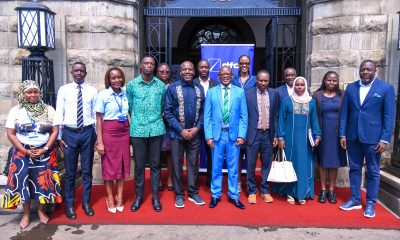

Makerere University, DFCU Bank Sign MoU to Advance Innovation, Student Leadership and Research
-
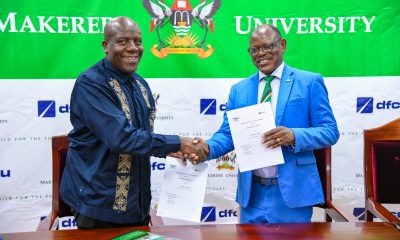

Press Release: Mak & DFCU Partner to Enhance Higher Education, Research & Student Support
-
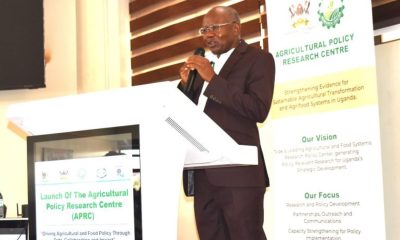

APRC Trains Graduate Students & Stakeholders in the Use of the African Agriculture Adaptation Atlas
-
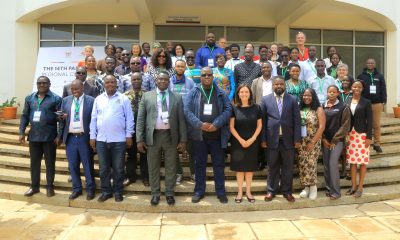

Harmonizing Africa’s Future through Musical Arts Education
-
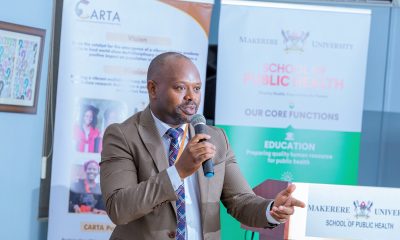

CARTA Focal Person Dr. Isunju Appointed to MakPress Editorial Board
-
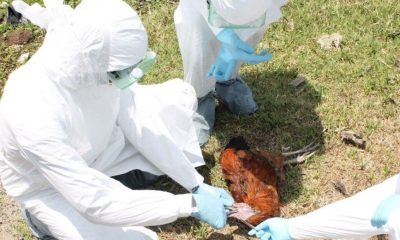

Advancing Regional Health Priorities Through the CARTA Research Hubs
Business & Management
Swedish Ambassador Calls on Uganda to Lead Africa’s E-Mobility Revolution
Published
3 days agoon
July 2, 2025By
Jane Anyango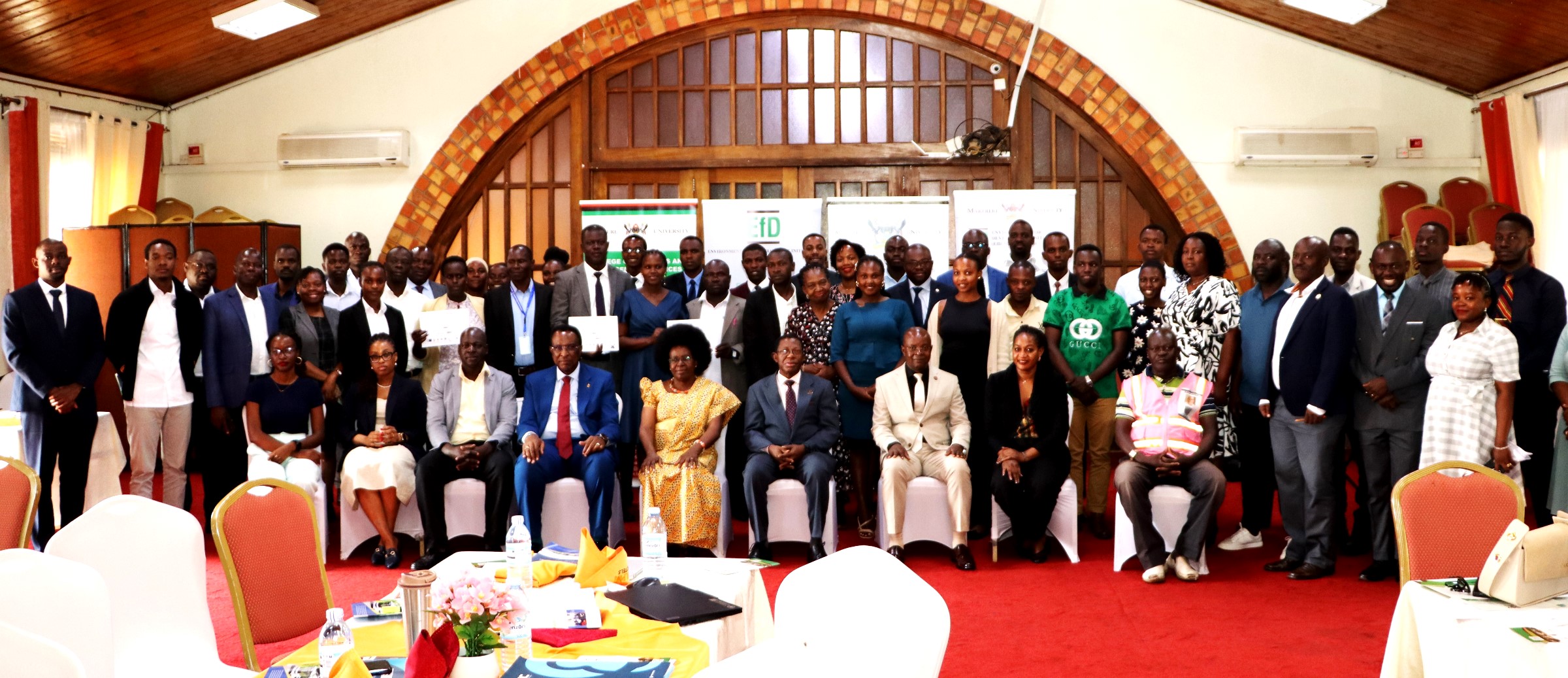
By Monica Meeme and Jane Anyango
Kampala, July 2, 2025
The 4th Cohort of the Inclusive Green Economy (IGE) Fellows 2024–2025 has graduated with certificates at a colorful ceremony held at the Kampala Kolping Hotel. The new IGE cohort 2025–2026 was also introduced during the event. The fellows—senior public servants from five key government institutions—completed a year-long training on green economic transformation, focusing on reducing emissions in Uganda’s transport sector. The participating institutions included the Ministry of Finance, Planning and Economic Development (specifically the new Climate Finance Unit), Ministry of Energy and Mineral Development, Ministry of Water and Environment, the National Planning Authority, and the Kampala Capital City Authority (KCCA).
The IGE Fellowship, funded by the Swedish International Development Cooperation Agency (Sida), is a capacity-building initiative coordinated by the University of Gothenburg in collaboration with Uganda’s Makerere University. This year’s program brought together senior officials from Uganda’s public sector to address policy and practical challenges in promoting e-mobility and reducing transport emissions.
The graduation ceremony attracted over 120 participants from Uganda’s ministries and agencies in water, minerals, and energy, as well as private sector players, academia, and civil society organizations. Dignitaries from Makerere University, including Vice-Chancellor Prof. Mukadasi Buyinza, several deans, and commissioners were present. Also in attendance were representatives from Kira Motors, UETCL, and other stakeholders in Uganda’s emerging e-mobility sector. The event was presided over by the Swedish Ambassador to Uganda, H.E. Maria Håkansson, as Chief Guest. Other dignitaries included the Minister for Science, Technology and Innovation, Hon. Dr. Monica Musenero; the Vice-Chancellor’s representative, Prof. Buyinza Mukadasi (also Academic Registrar and Acting Deputy Vice Chancellor in charge of Academic Affairs); and the Principal of the College of Business and Management Sciences, who also leads the Uganda IGE program.
Sweden’s Call to Action
H.E. Maria Håkansson commended Uganda’s efforts to transition to a green economy and urged the country to lead Africa’s e-mobility revolution. Speaking at the ceremony, Ambassador Håkansson emphasized the importance of clean transport solutions for achieving climate goals and driving national development.
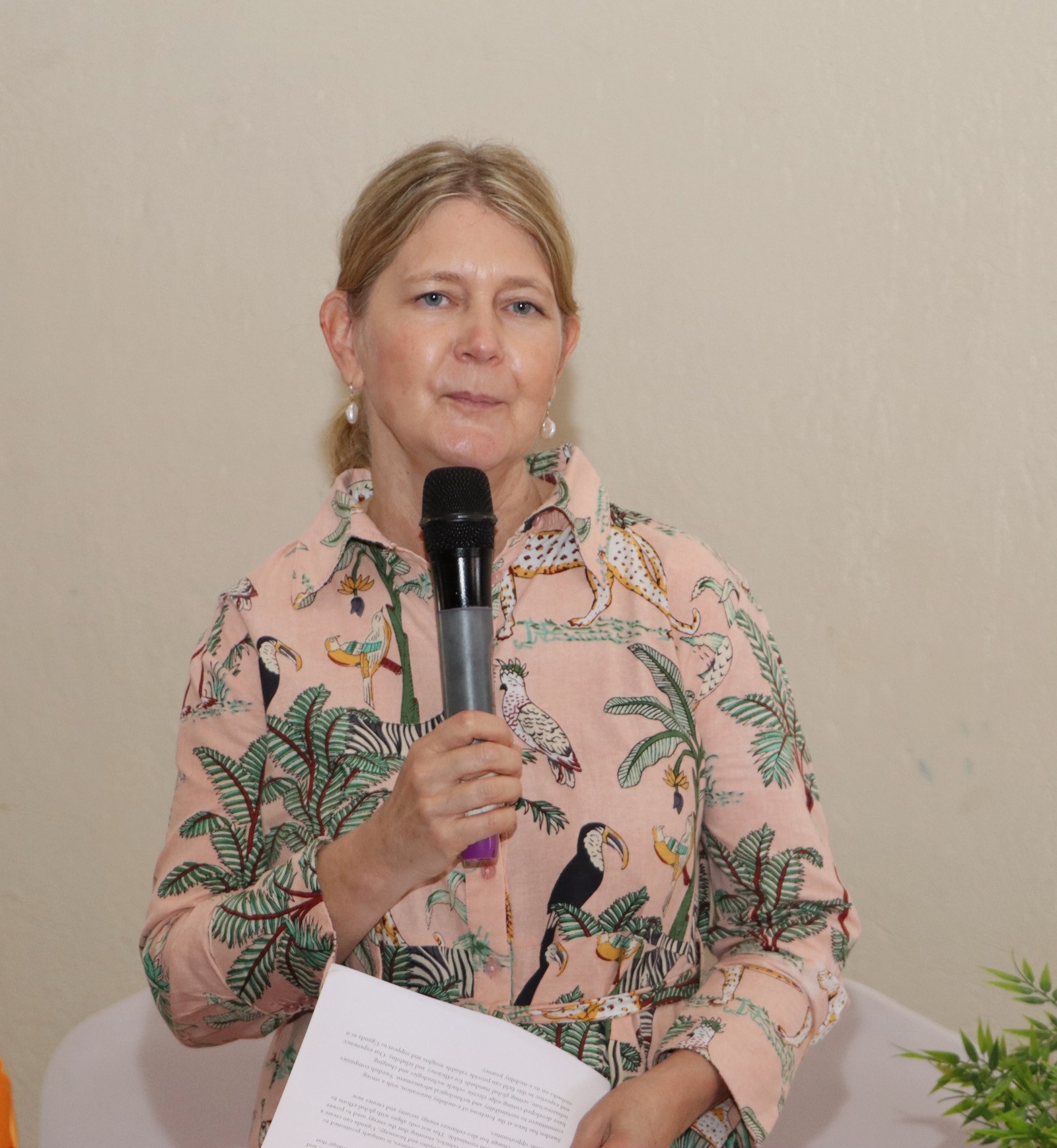
“It is a pleasure and honor to celebrate a cohort of professionals now better equipped to shape Uganda’s green economy,” she said. “This year’s focus on e-mobility is not just timely—it’s essential.”
She stressed that transitioning to electric mobility is more than a technological shift—it’s a paradigm change with broad social, economic, and environmental implications.
“Uganda, with its abundant renewable energy resources—solar, hydro, and bioenergy—is uniquely positioned to lead this transition,” she noted. “Clean energy must power clean transport.”
Drawing on Sweden’s experience, Håkansson said Swedish companies have set global benchmarks in electric vehicle technologies and infrastructure. She reaffirmed Sweden’s readiness to support Uganda in building a sustainable e-mobility ecosystem.
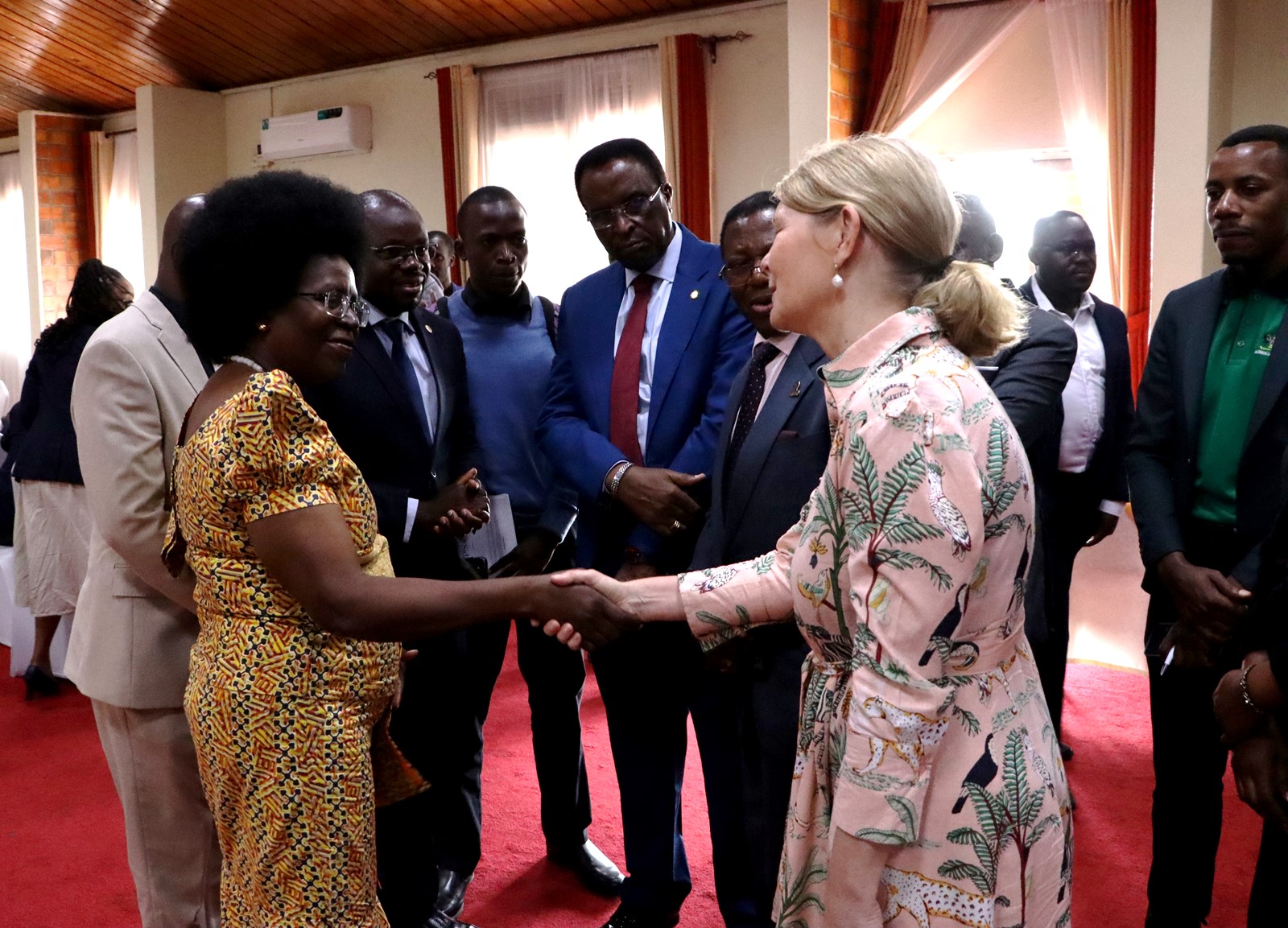
“Investment in charging infrastructure, incentives for EV production and use, and public awareness campaigns are essential to making this work,” she said.
She also called for a whole-of-society approach, urging collaboration between government, academia, the private sector, and civil society.
“It’s inspiring to see multi-sectoral representation here. This is exactly what’s needed to move from policy to impact,” she added.
A Message to the Graduates: Be the Pioneers
Addressing the 2024 IGE Fellows directly, Ambassador Håkansson described them as pioneers of Uganda’s green transformation.
“You have the knowledge, the skills, and the platform to influence policy, drive innovation, and lead by example,” she said. “Embrace that responsibility with passion and determination. Uganda’s future is in your hands.”
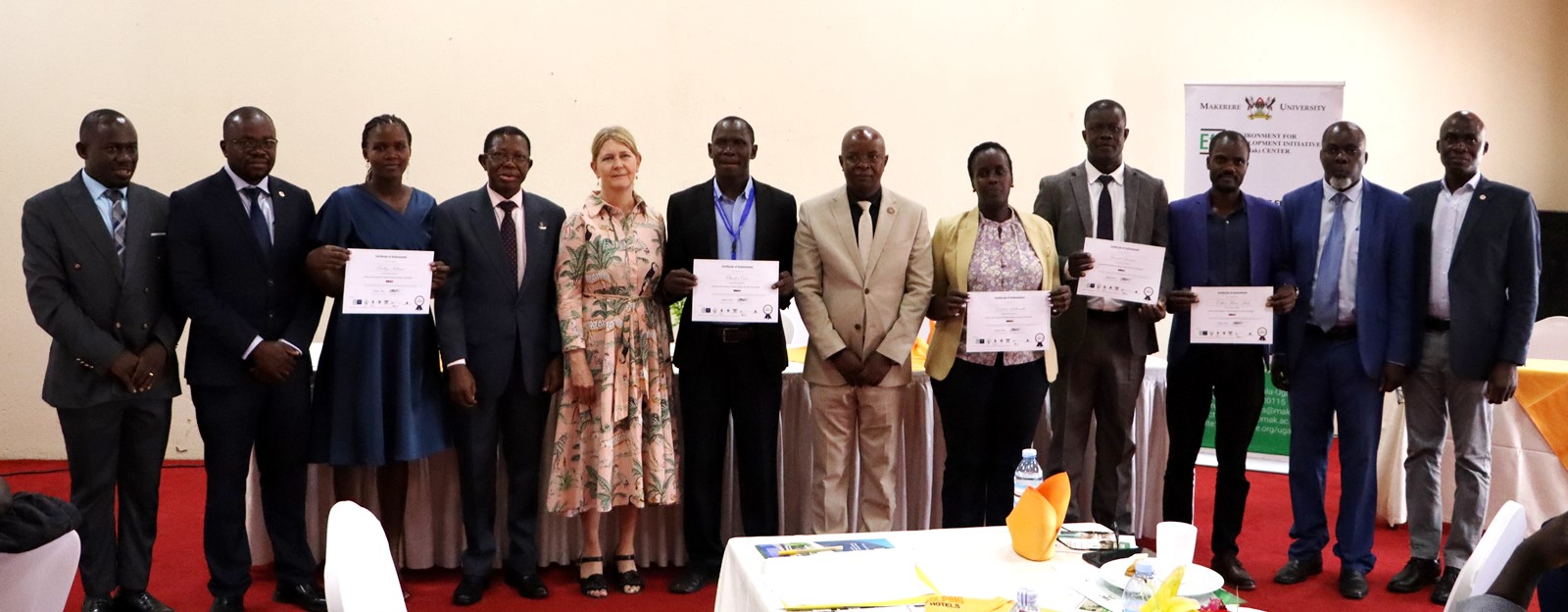
She concluded by congratulating the fellows and reaffirming Sweden’s commitment to supporting Uganda’s green economy agenda.
“Your achievements are not just personal milestones; they are part of a broader mission to ensure a better, cleaner, and more sustainable future for all.”
Minister Musenero Urges Integration of STI and Economic Policy
Minister for Science, Technology and Innovation, Dr. Monica Musenero, called for urgent alignment of science, technology, and innovation (STI) with economic policy to transition Uganda into a sustainable green economy.
She emphasized the role of public sector leadership in combating climate change through e-mobility, energy efficiency, and adaptive economic strategies.
“This cohort has shown what’s possible when we equip our civil service with tools and knowledge beyond traditional silos,” she said. “STI alone cannot transform our economy. Without the right incentives and economic policies, even the best innovations may not scale.”
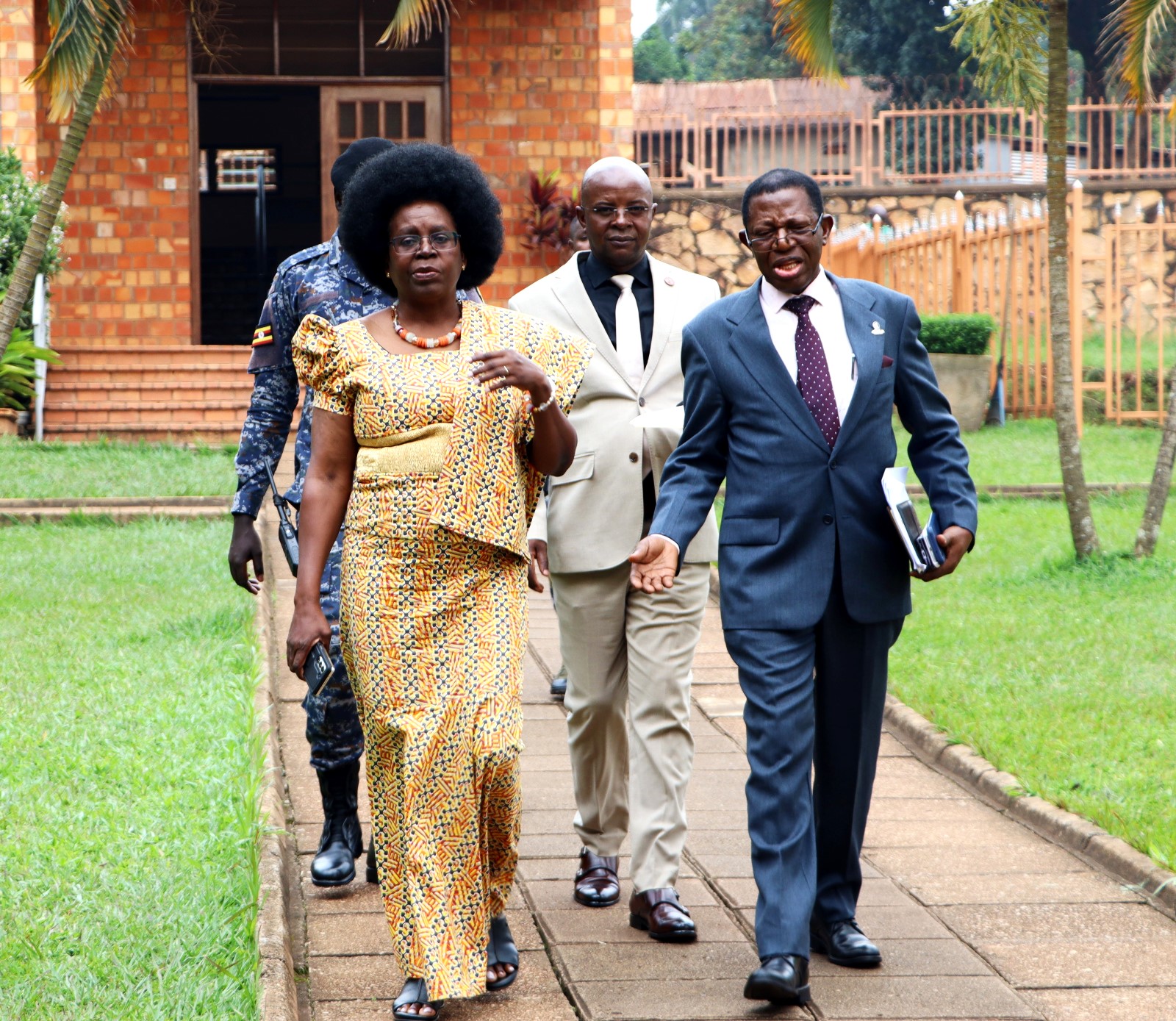
E-mobility was central to the fellows’ training. From motorcycles to buses, Uganda’s electric vehicle transition was presented as both an environmental necessity and an economic opportunity. Kira Motors Corporation was highlighted as a standout example that has inspired regional interest.
“Our transport sector is a major emitter,” said one program coordinator. “But through e-mobility and better planning, we can make real progress. That’s why we brought together not only policymakers but also private sector players, utility providers, and boda-boda operators.”
The IGE Program operates in Uganda, Kenya, Tanzania, Rwanda, and Ethiopia. It combines technical training, peer learning, and national policy engagement.
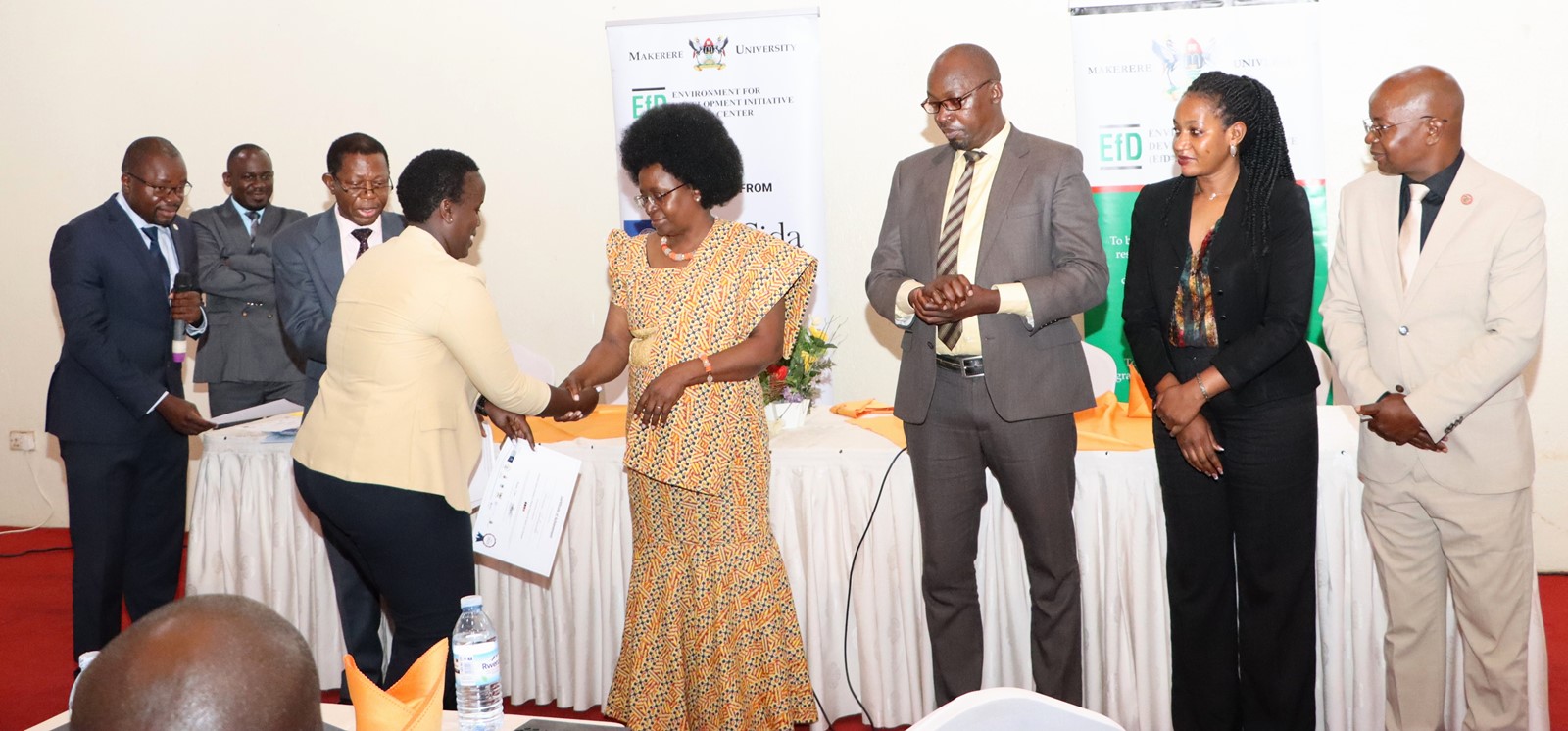
Fellows visited institutions in Rwanda, Kenya, and Ethiopia to exchange experiences and showcase Uganda’s successes—particularly the Kira EV initiative, which has become a regional benchmark.
Dr. Musenero emphasized Uganda’s commitment to using STI to meet its climate goals but cautioned against fragmented efforts.
“Africa may contribute less than 4% of global emissions, but we suffer disproportionately,” she said. “This is our moment to lead—not just through innovation, but by creating the right environment for innovation to flourish.”
Musenero Warns Against Passive Technology Adoption
Dr. Musenero urged African nations to stop passively receiving technology and instead harness it for economic sovereignty and relevance.

She argued that unless African countries take control of their role in the Fourth Industrial Revolution, they risk falling into cycles of dependency.
“We now have enough PhDs, institutions, and qualified leaders,” she said. “So it’s unacceptable that Africa receives this revolution as it did the last—awed by foreign inventions but unable to replicate them.”
While e-mobility is often framed as a climate solution, she urged fellows to focus on wealth creation, job generation, and manufacturing.
“Thriving means growing despite challenges. Harnessing is using innovation as a launchpad for prosperity. That’s the mindset we need.”
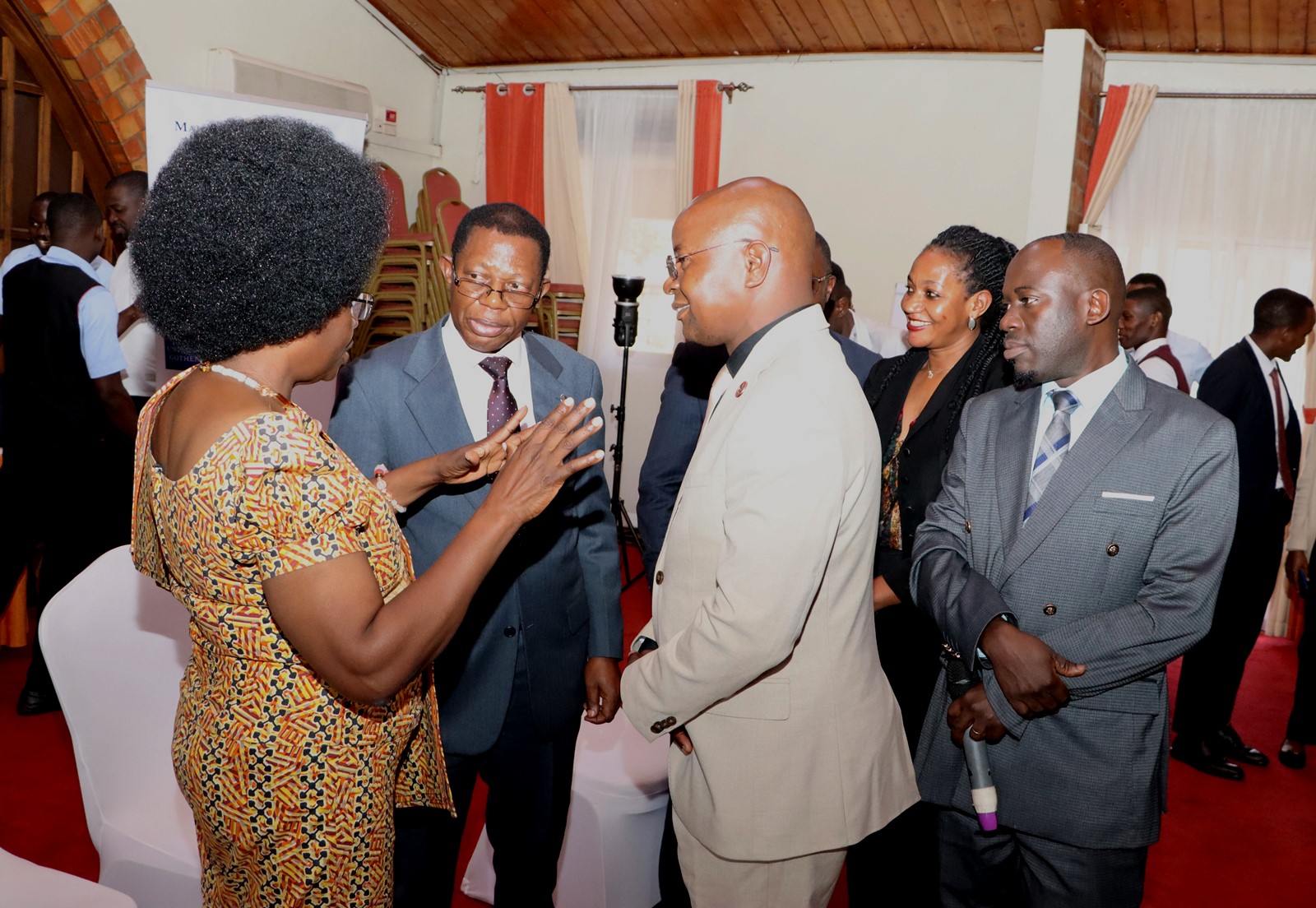
She warned that Uganda’s green transition must go beyond emissions reduction to address economic transformation.
Dr. Musenero offered a historical account of how past industrial revolutions left Africa behind—not due to lack of technology, but due to lack of understanding.
“The first industrial revolution didn’t start with a master plan—it started small and grew. But countries that embraced it changed forever. Africa, meanwhile, was herding cattle,” she said.
Now, with digital technology, AI, biotechnology, and green energy, Africa must act decisively.
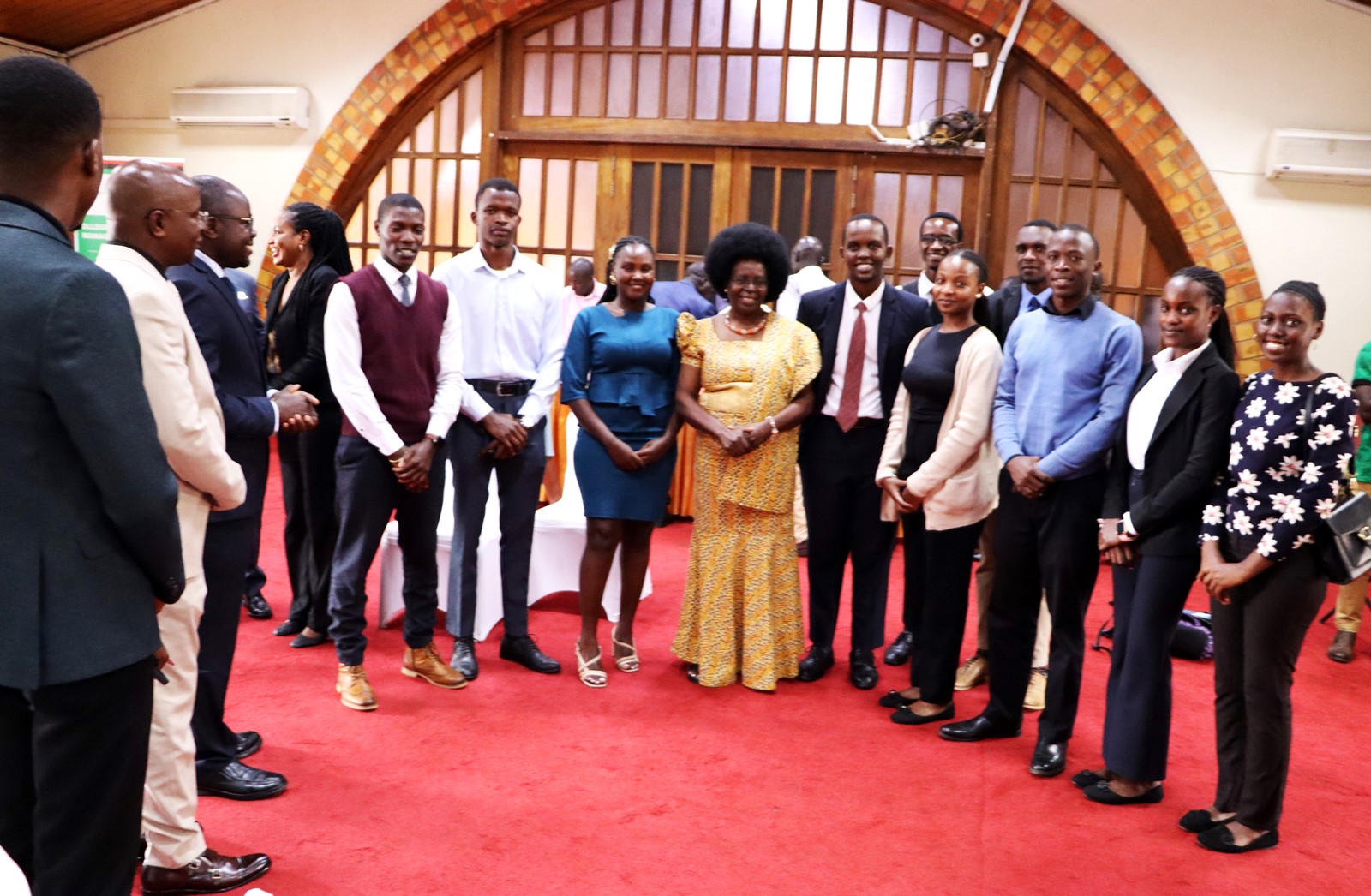
“We were unprepared then. But now we have the tools, the minds, and the responsibility.”
She concluded with a call for internships and deeper policy engagement, suggesting that all IGE Fellows be seconded to her ministry.
“We need you to think—not just about policies, but about the why. Why e-mobility? Why now? What does it mean beyond emissions?”
Makerere University Urges Fellows to Champion Uganda’s Green Future
Prof. Mukadasi Buyinza, representing the Vice-Chancellor, urged the graduates to become ambassadors of the green economy, leading transformative change.
He praised the year-long training as timely and vital for addressing regional environmental and economic challenges.
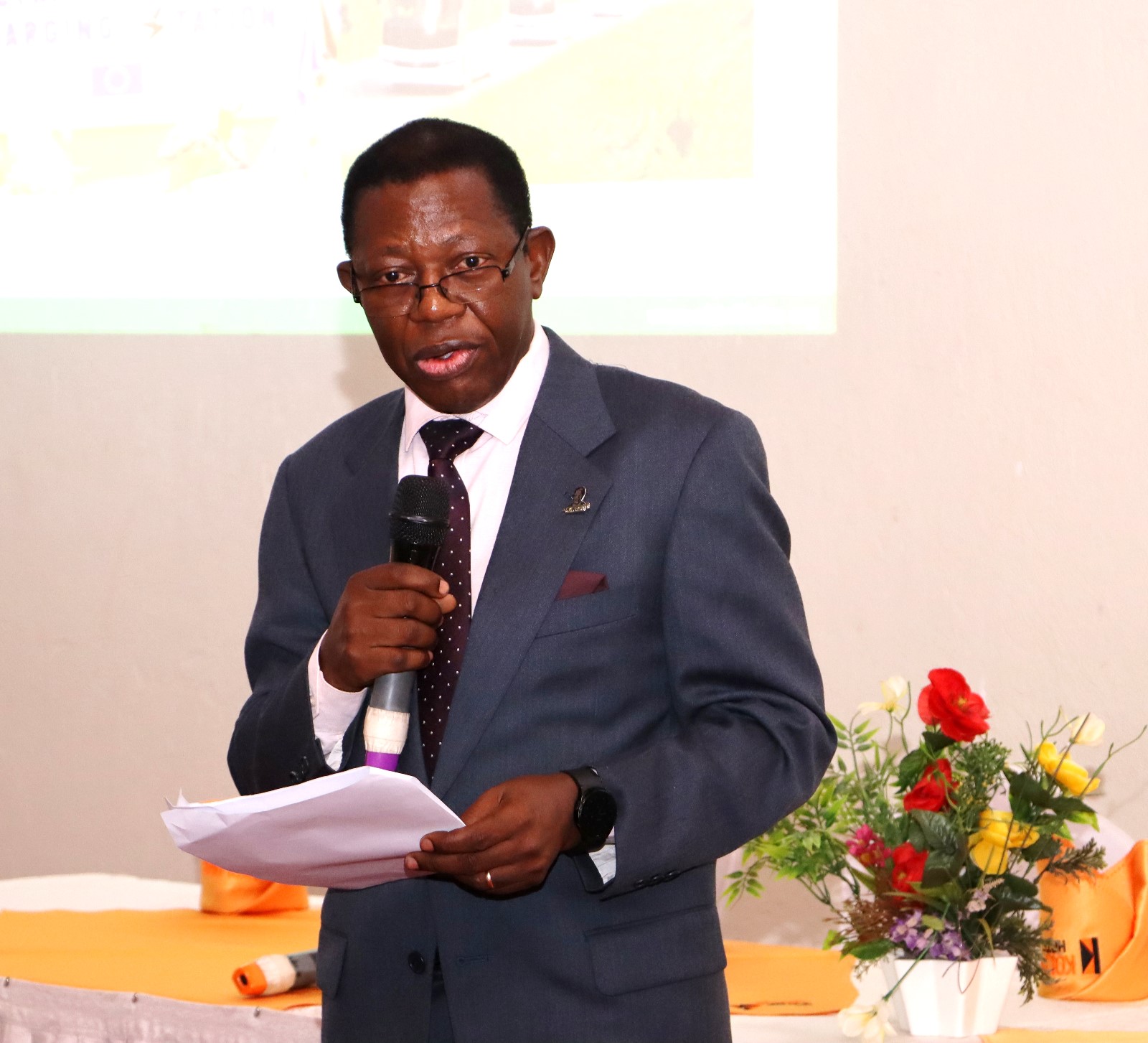
“Technology never solves problems without creating others,” he said. “As we develop, we must manage the disruptions that come with it.”
The program, supported by Sida and hosted by Makerere University, equips senior government officials with tools for green policy-making. This year’s fellows came from finance, energy, environment, and planning sectors—central to Uganda’s development.
Prof. Buyinza highlighted the inclusion of climate finance officers, planners, and engineers, noting that cross-sector collaboration is key.
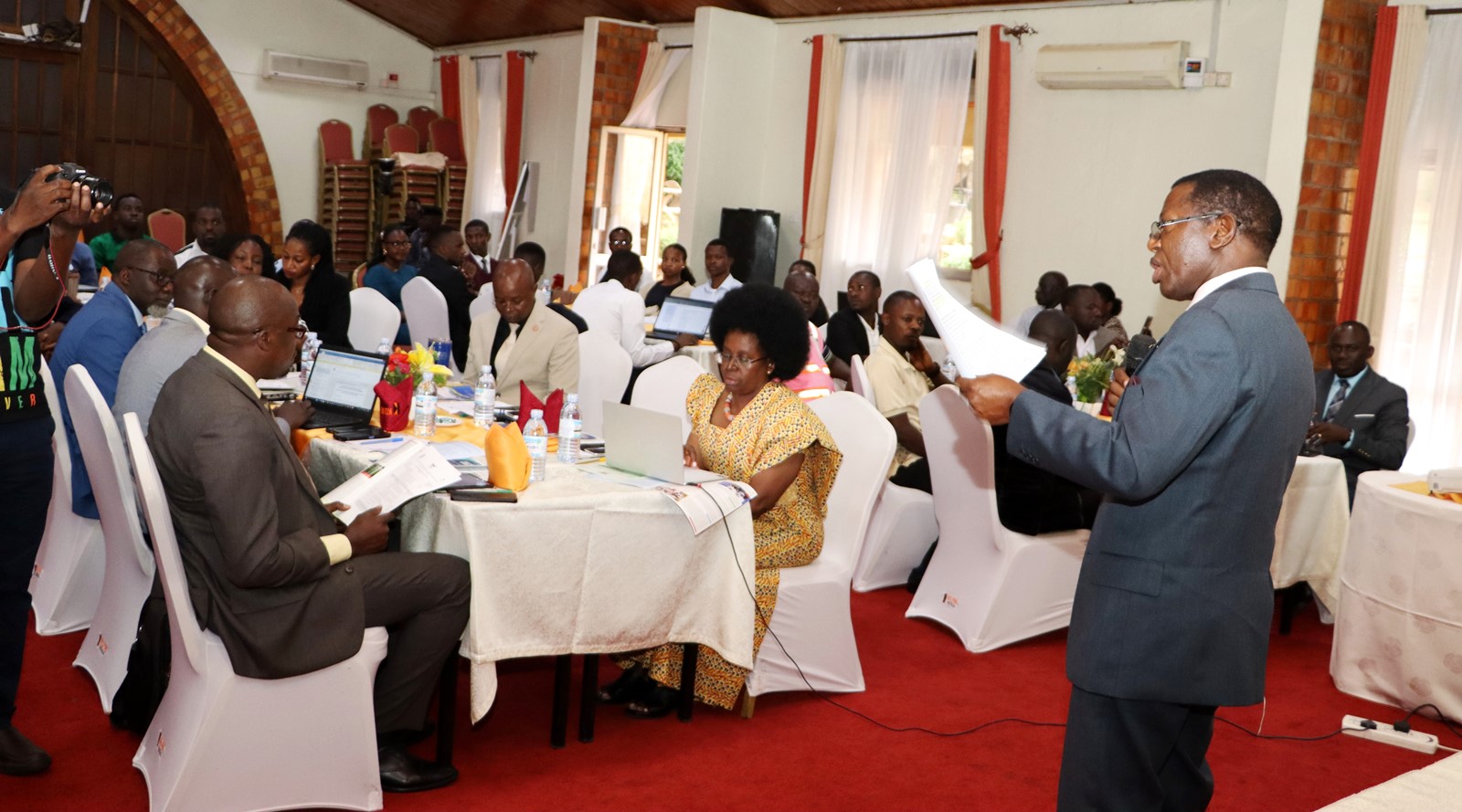
“This is how we build a green industrial economy,” he said. “Green skills, green jobs—that’s the call of the time.”
He celebrated the program’s regional scope, involving fellows from Uganda, Rwanda, Tanzania, and Ethiopia, and stressed knowledge-sharing across borders.
“This transition from diesel to electric vehicles offers real opportunities to improve air quality, reduce emissions, and modernize transport.”
He concluded by reminding graduates of their duty:
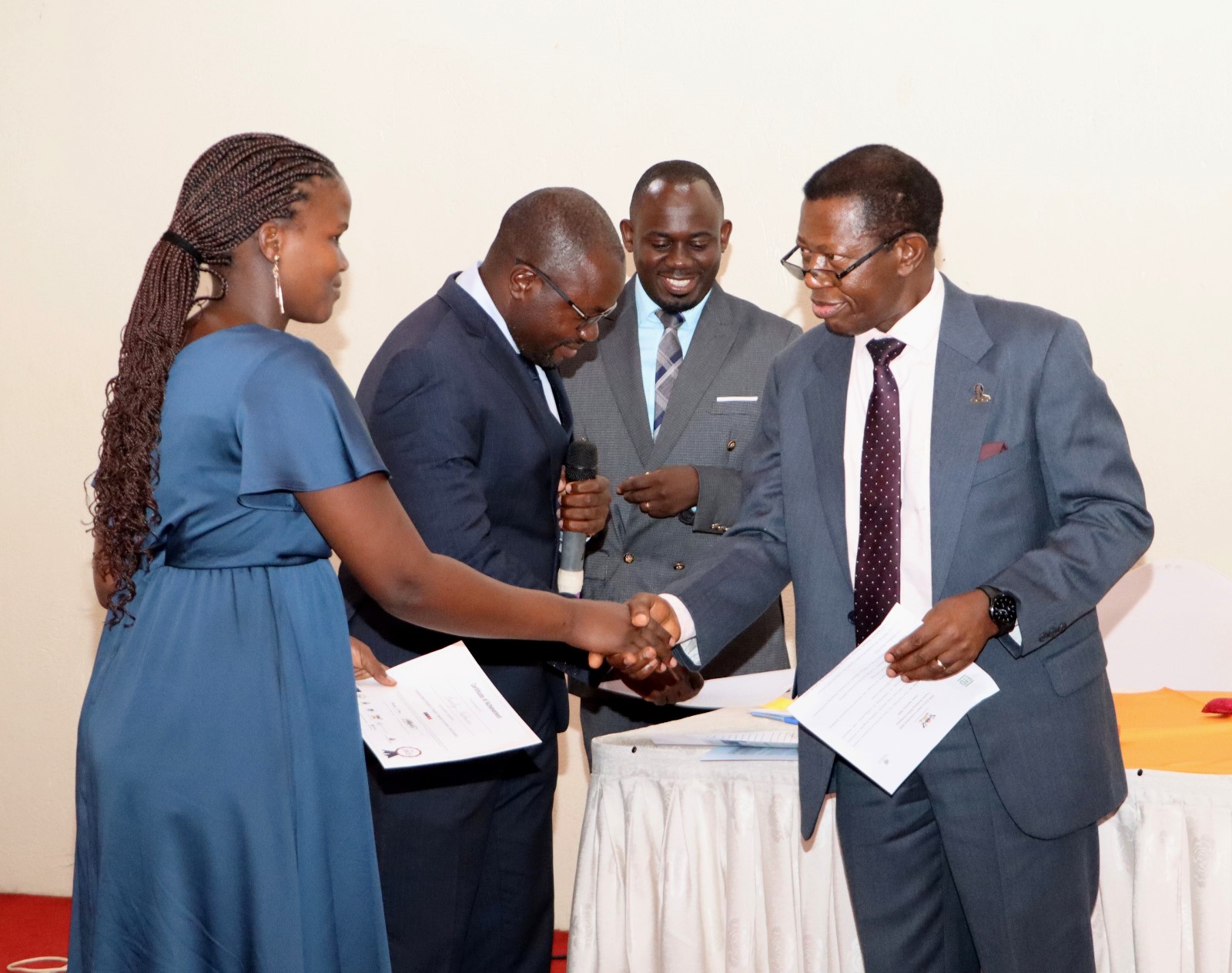
“You are our ambassadors. We count on you to deliver transformative, scalable programs that shape Uganda’s future.”
Prof. Edward Bbaale: “Seeds of Transformation”
Prof. Edward Bbaale, Director of the IGE Programme, described the initiative as a model of interdisciplinary excellence.
“You are seeds of transformation,” he said. “You’ve not just completed a course—you’re now champions of Uganda’s green transition.”
Fellows were drawn from five key institutions and focused on reducing transport emissions through energy efficiency and e-mobility.
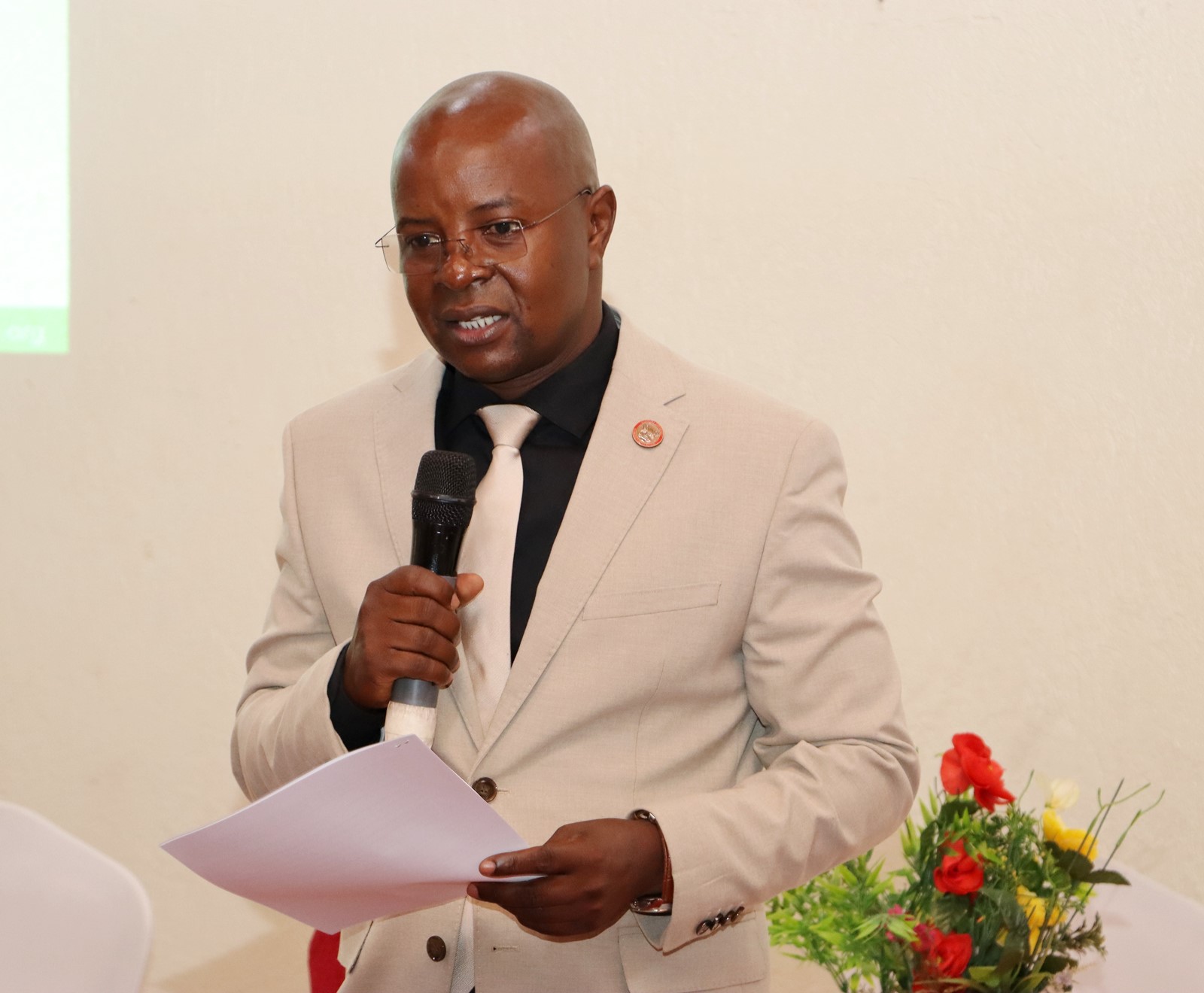
Prof. Bbaale emphasized the need for cross-sector dialogue and noted that e-mobility is not just about technology—it’s also about infrastructure, incentives, and economics.
“Scientific breakthroughs must be matched by sound economic policy,” he said. “Without the right tools—taxes, subsidies, regulation—green initiatives may stall.”
He pointed out that Africa, though contributing less than 4% of global emissions, suffers disproportionately, demanding urgent and pragmatic responses.
He lauded the regional scope of the program and Uganda’s leadership, particularly the Kira EV model, which has drawn admiration across East Africa.
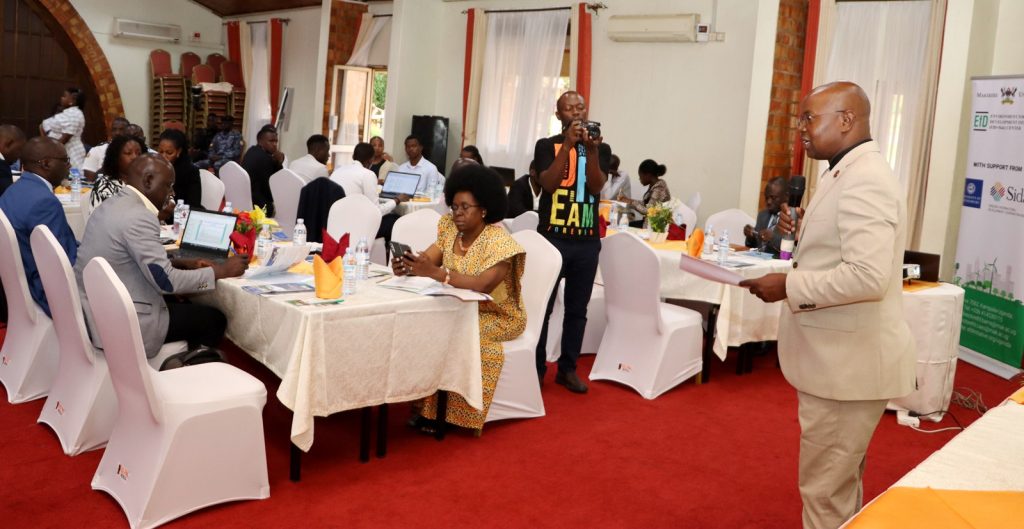
Prof. Bbaale credited Sida, the University of Gothenburg, Makerere leadership, and Dr. Musenero for bridging the gap between science and economics.
“Be the voice of change. Let your work reduce emissions, create jobs, and improve lives,” he urged the graduates.
The Journey of the 2024 IGE Fellows
When the 2024 IGE Cohort began in April, few anticipated the scale of transformation—both professionally and personally.
One fellow, Charles Ochen from the Ministry of Water and Environment, described it as “a lived experience in real policy transformation.”
Fellows engaged in immersive workshops, field visits, and practical sessions grounded in Uganda’s development context. A solar-powered facility visit early in the program emphasized the feasibility of renewables.
The cohort’s focus—“Energy Efficiency and Reduced Emissions in Uganda’s Transport Sector”—was timely. They studied everything from electric motorcycles to EV infrastructure.
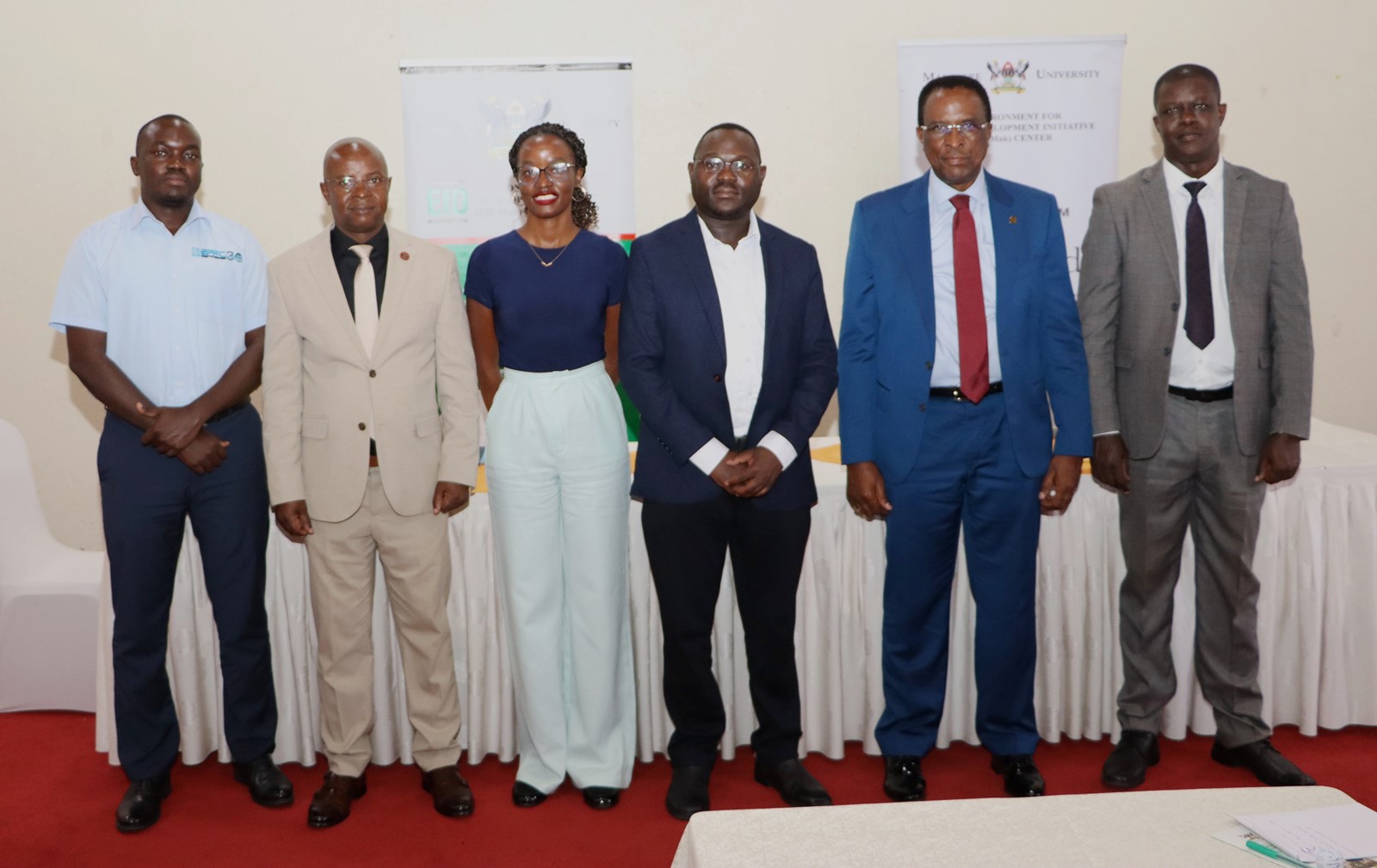
Doreen Ankunda identified key barriers:
- Unpredictable tax exemptions
- Lack of standards for charging infrastructure
- Limited fiscal incentives
- Low public awareness
Their policy proposal included:
- National charging infrastructure guidelines
- Stable EV-related tax policies
- Incentives for local assembly
- Public education campaigns
Fellows also participated in peer learning across the region. Uganda’s Kira Motors was praised, while insights from Kenya and Rwanda enriched their understanding.
Charles Ochen emphasized: “You can’t bring policy without bringing stakeholders.”
Panel Discussion and Closing Remarks
Panelists highlighted both opportunities and challenges in Uganda’s e-mobility sector.
Kira Motors, Uganda’s flagship EV manufacturer, reported progress: nine electric buses in operation, over 300 operators trained, and expansion plans underway.
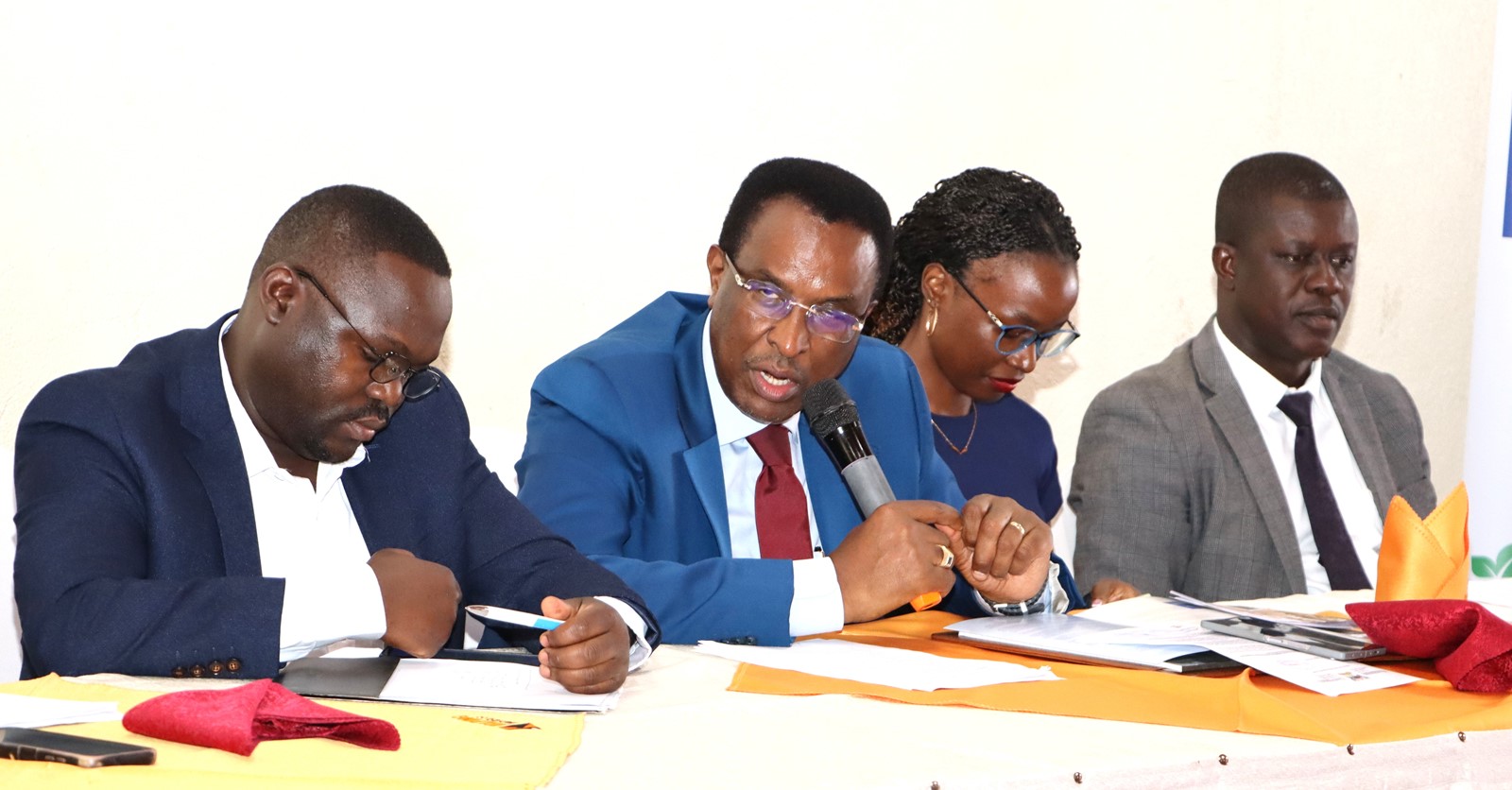
However, challenges persist:
- Low rural awareness and misinformation
- Shortage of trained EV technicians
- Limited charging infrastructure
- High EV costs for ordinary users
Policy gaps also remain. Drafts on EV standards and battery recycling await approval.
Commissioner Dr. Brian Isabirye stressed institutional alignment: “If Parliament can fund fuel cars, why not electric buses?”
Sweden’s ambassadorial team praised the IGE platform for uniting voices across sectors.
“Too often, we work in silos. This forum proves that dialogue leads to action.”
Monica Meeme is an Internee and Jane Anyango is the Communication Officer EfD Uganda
Business & Management
Uganda Deepens Economic Governance with Training on Regulatory Cost-Benefit Analysis
Published
5 days agoon
June 30, 2025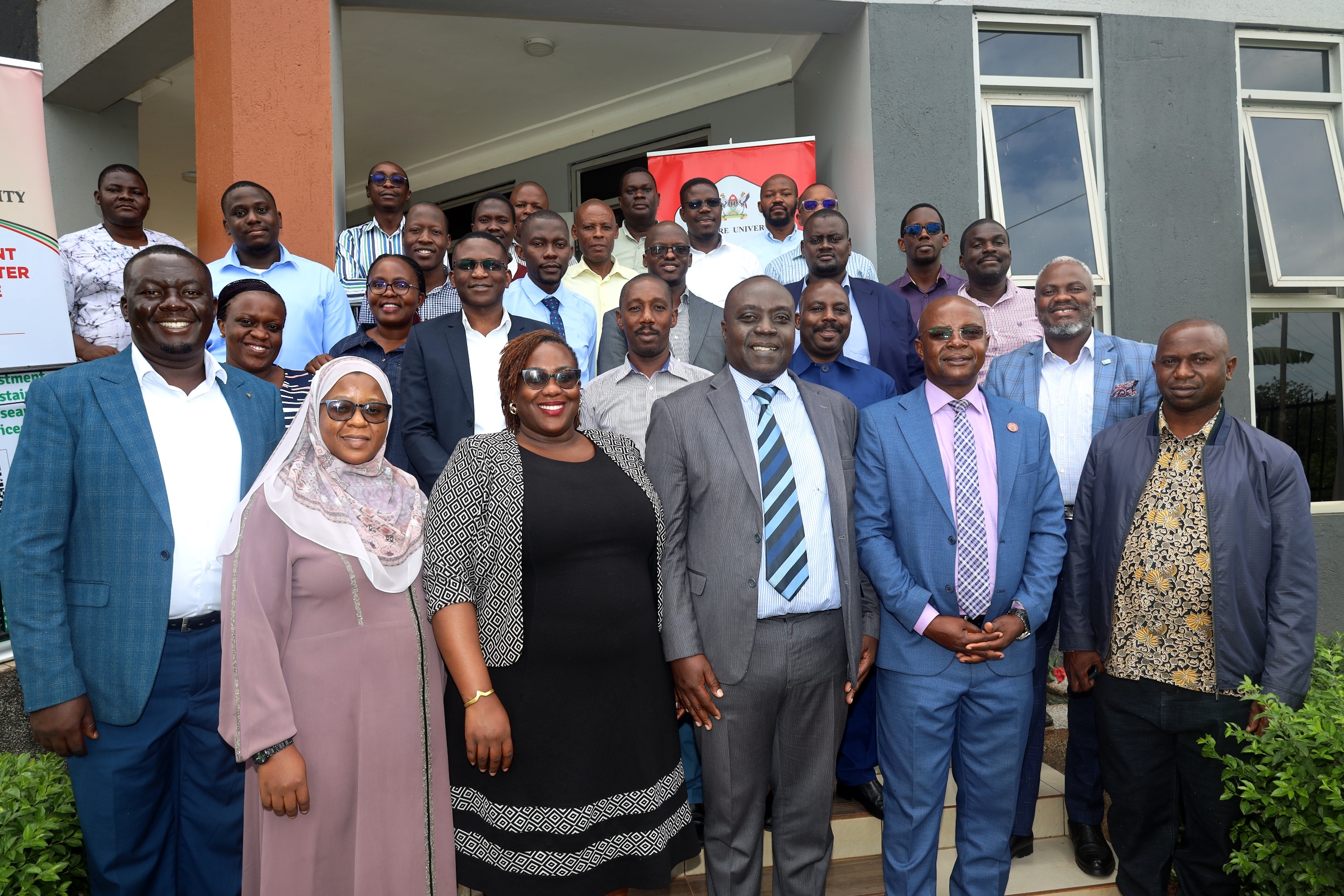
The Ministry of Finance, Planning and Economic Development (MoFPED), in collaboration with the Public Investment Management Centre of Excellence at Makerere University, has commenced a two-week Integrated Regulatory Cost-Benefit Analysis (IRCBA) training in Jinja. The training, which runs from June 30 to July 11, brings together economists and policy analysts from Ministries, Departments, and Agencies (MDAs) across government.
The training was officially opened by Mr. Paul Mwanja, Commissioner for Infrastructure and Social Services at MoFPED, who represented the Permanent Secretary/Secretary to the Treasury. He was joined by Prof. Edward Bbaale, Principal of the College of Business and Management Sciences at Makerere University and head of the PIM Centre of Excellence.
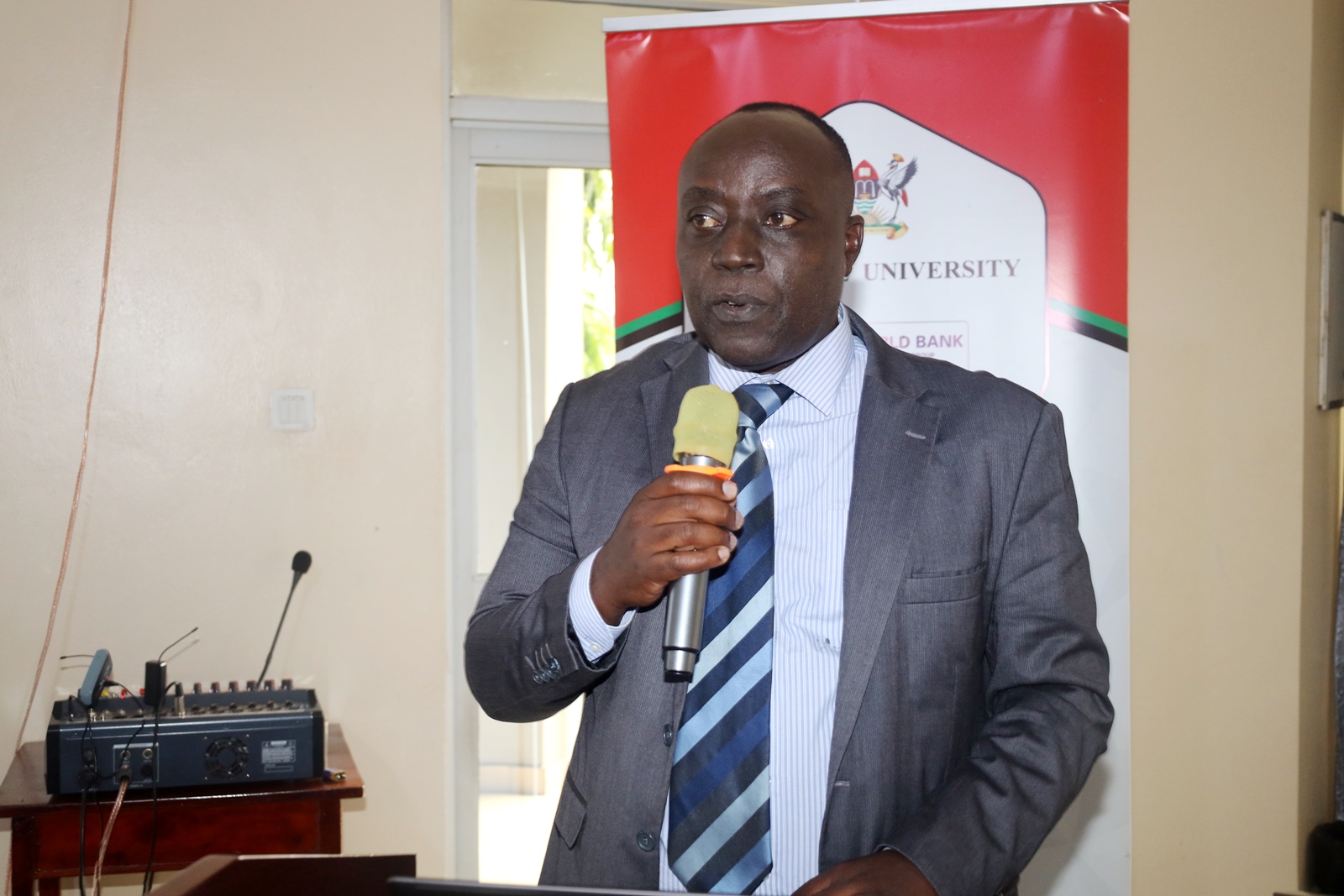
In his remarks, Mr. Mwanja emphasized that the training marks a pivotal step in the operationalization of the Revised Guidelines for Financial Clearance (CFI), launched on June 20, 2025. “These guidelines are more than procedural. They are a critical instrument for ensuring that government policies and legislation are fiscally sound, inclusive, and developmentally aligned,” he said.
Prof. Bbaale echoed these sentiments, highlighting the strategic timing of the training. “This is the first opportunity for many participants to engage practically with the new guidelines. It is part of a long-term agenda to institutionalize a culture of evidence-based decision-making within government,” he noted.
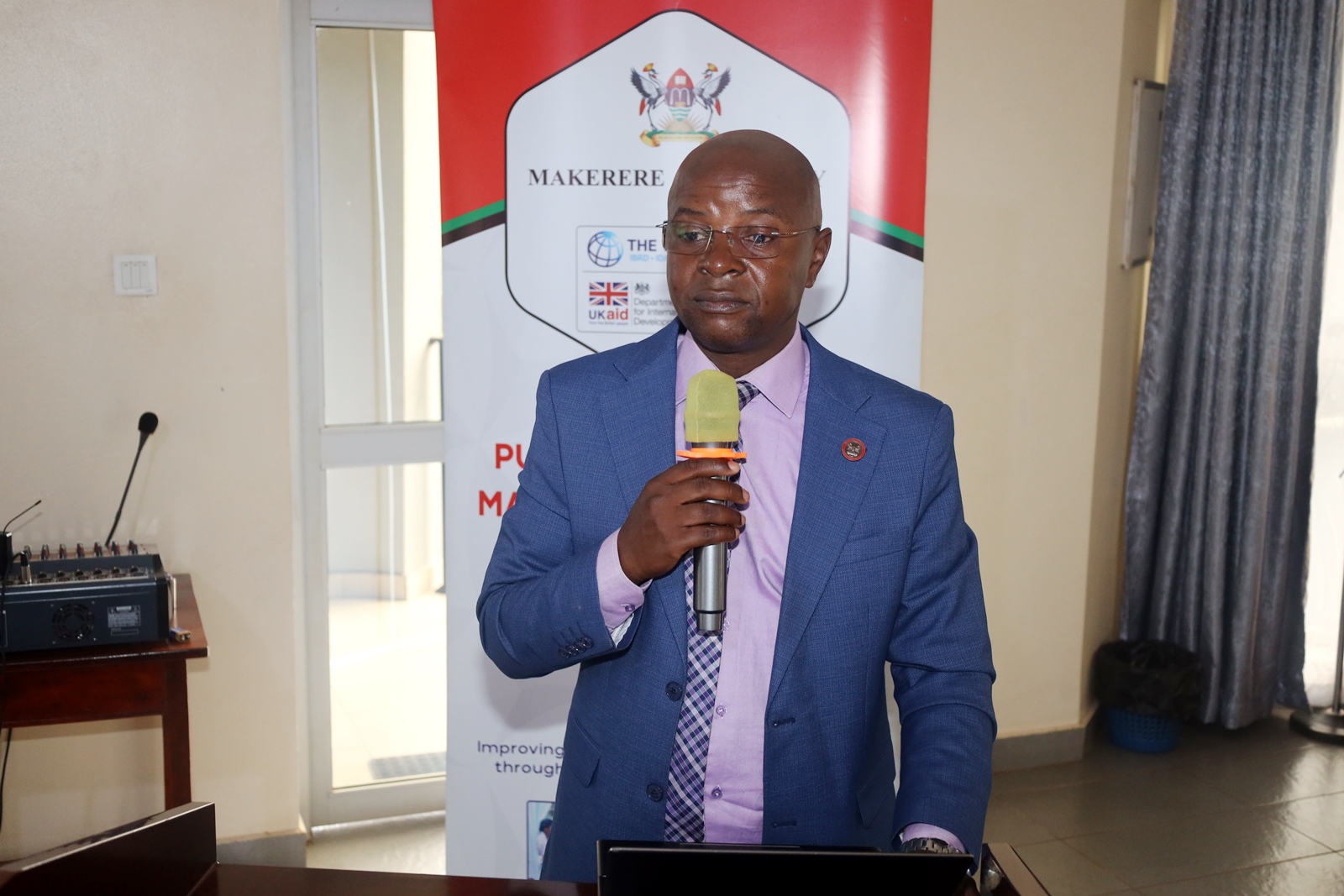
The IRCBA training is structured to build technical capacity in appraising the fiscal, economic, distributional, and risk implications of public policy and legislation. Participants will be introduced to tools such as Net Present Value (NPV), Benefit-Cost Ratios, and Sensitivity Analysis to ensure that all policy proposals are well-justified and deliver value for money.
According to the Revised CFI Guidelines, all requests for financial clearance submitted to MoFPED from July 1, 2025, must now include comprehensive assessments aligned with Uganda’s national development agenda and medium-term expenditure frameworks. The guidelines aim to promote transparency, strengthen fiscal governance, and improve the quality of public expenditure.
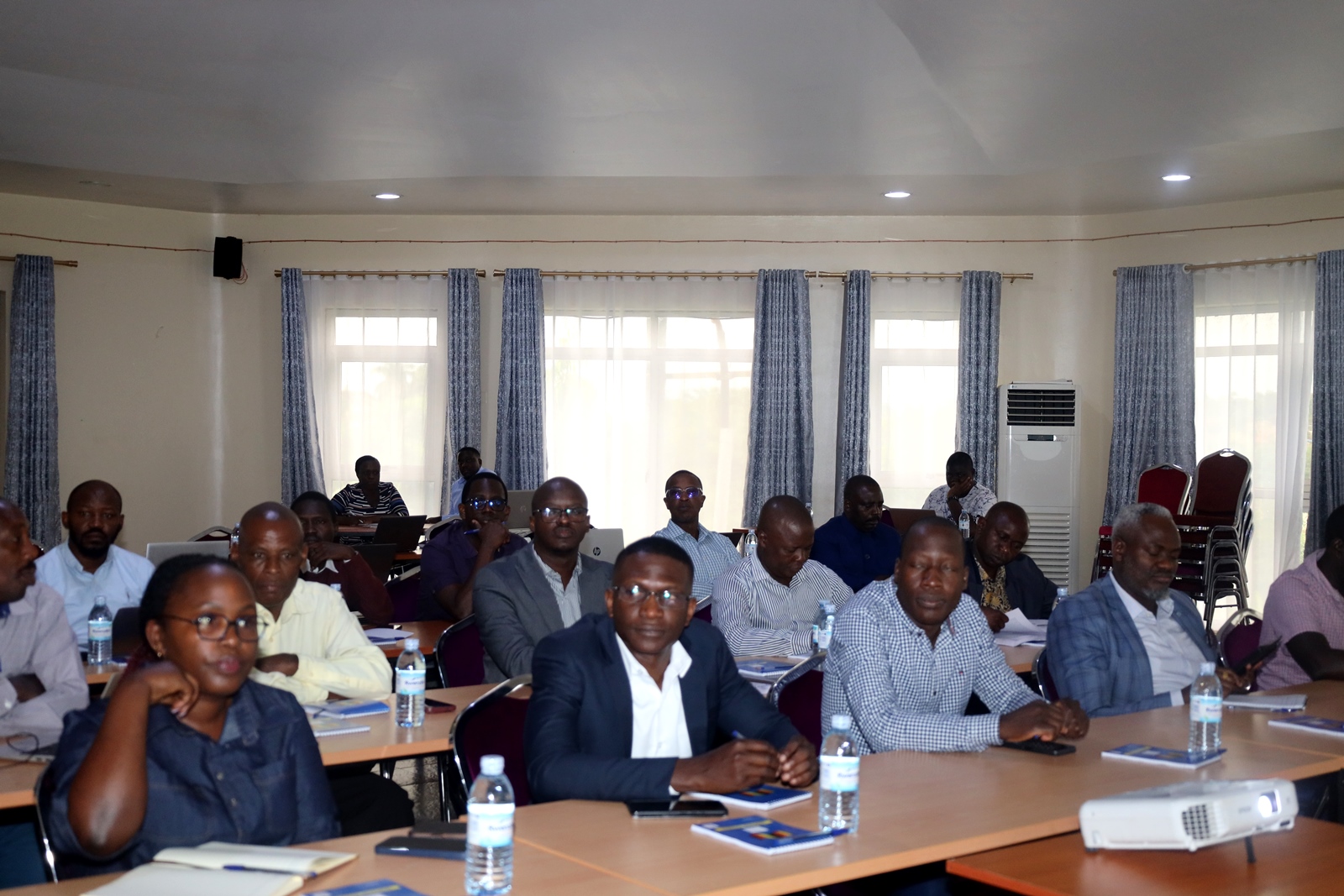
“Through this partnership with the PIM Centre of Excellence, we are not only training individuals—we are building a critical mass of professionals capable of shaping sound public policies,” Mr. Mwanja stated.
The Centre of Excellence will continue to roll out similar trainings throughout the financial year, reinforcing MoFPED’s broader reform efforts under the Fourth National Development Plan (NDP IV) and the 10-Fold Growth Strategy.
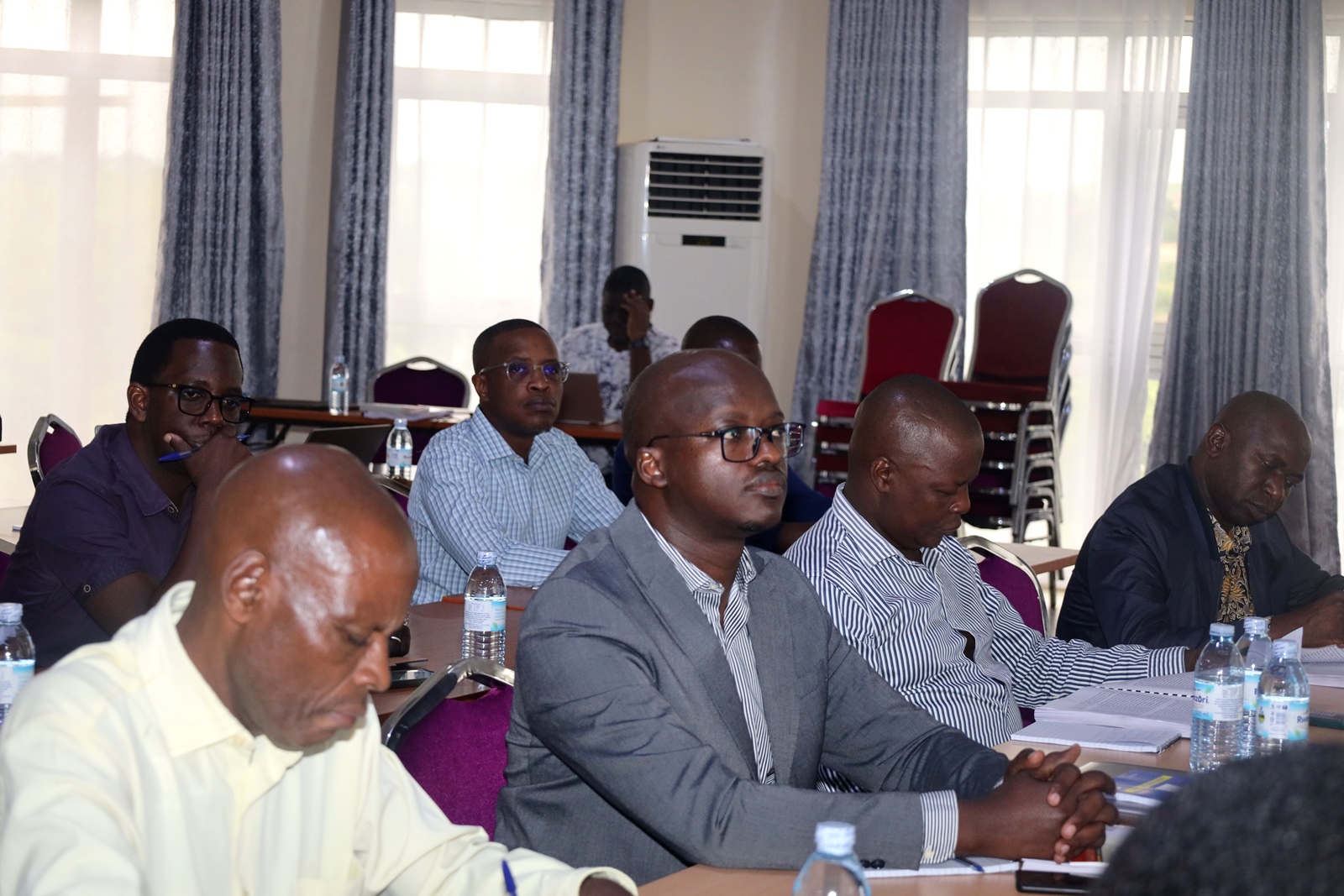
Participants were urged to fully immerse themselves in the training and emerge as champions of high-quality, evidence-based policymaking. “This is how we ensure that every shilling spent by government reflects our national priorities and brings meaningful impact to citizens,” Prof. Bbaale said.
The training reflects the Government of Uganda’s commitment to professionalizing public policy formulation and ensuring that regulatory and legislative proposals are not only visionary but also fiscally responsible and socially inclusive.
Business & Management
Strengthening Europe-Africa Higher Education Collaboration through the NEAR-ER Project
Published
2 weeks agoon
June 20, 2025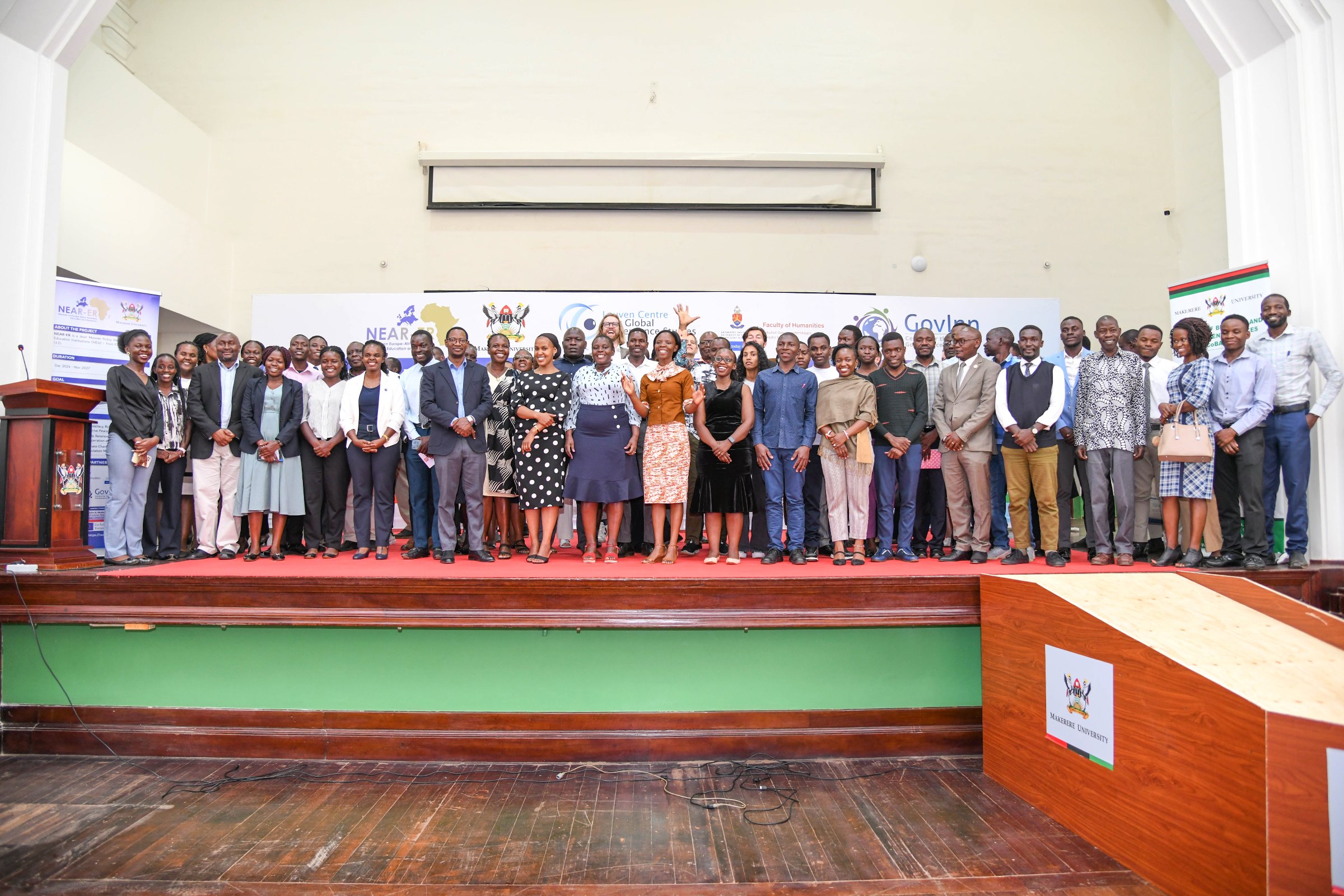
Makerere University in Uganda, is implementing the Network on Europe and Africa Relations-Education and Research (NEAR-ER) project, which seeks to strengthen collaboration in higher education through dialogue, events, scholarly debates, exchange of best practices, and dissemination of research and techniques.
The NEAR-ER is a Jean Monnet policy network of 20 higher education institutions; 7 in Europe and 13 in Africa. The thematic areas include: Shared Peace, Shared Prosperity and Shared Spaces as expounded below:
Shared Peace-Democracy, Rule of Law, Justice and Positive Peace Initiatives; Shared Prosperity-Trade Relations, Development Cooperation and Sustainability; and Shared Spaces-Climate Change, Energy Cooperation and Population Movement
The implementation of the three year (December 2024 to November 2027), NEAR-ER project co-funded by the European Union, follows a successful response, to a call for proposals by researchers based at the School of Statistics and Planning under the College of Business and Management Sciences (CoBAMS). The NEAR-ER research team consists of the following: Dr. John M. Mushomi – Principal Investigator, Dr. Patricia Ndugga, Dr. Elizabeth Nansubuga, Dr. Olivia Nankinga, Dr. Nicholas Tunanukye and Dr. Fred Maniragaba.
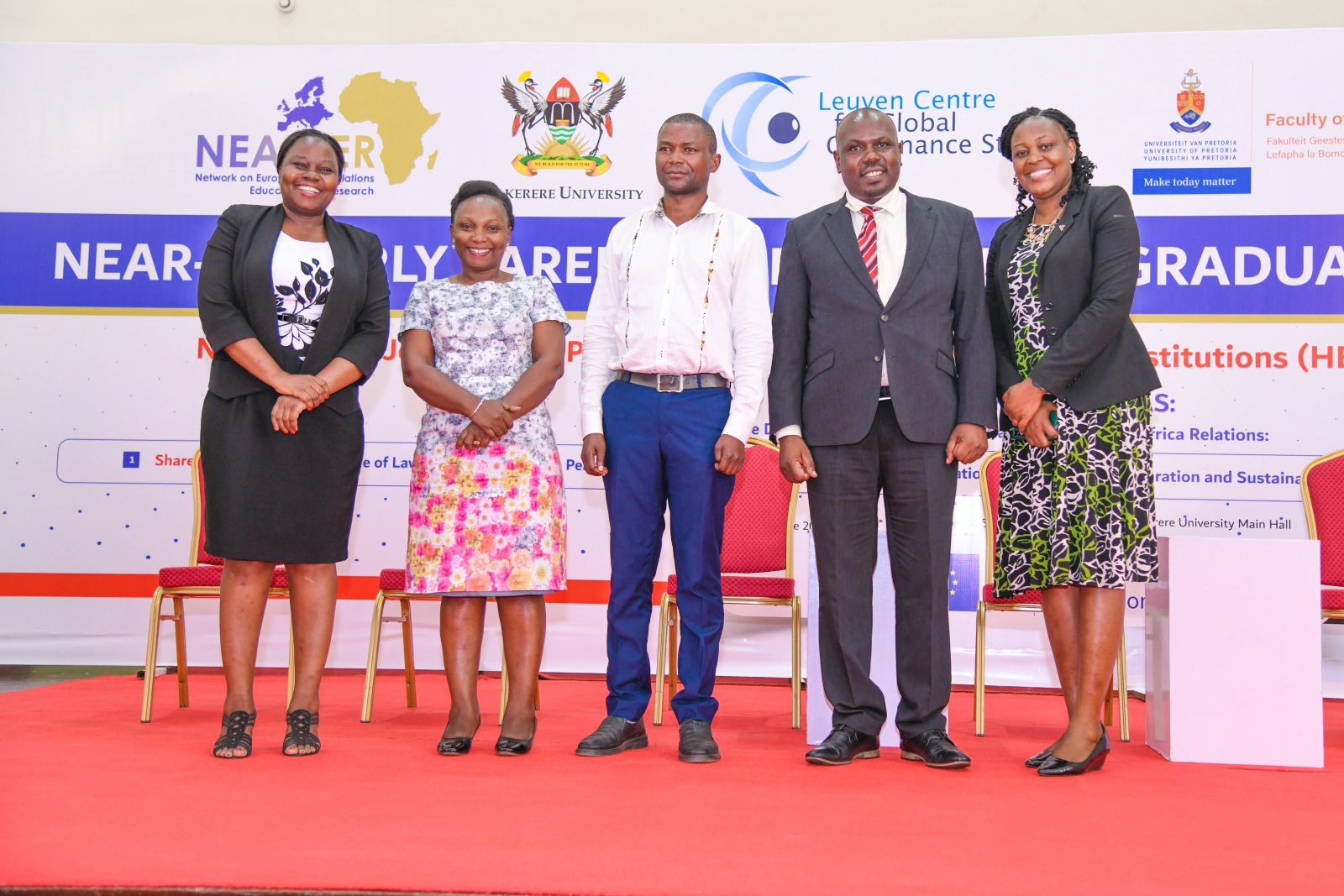
Early Career Researchers and Graduate Students’ Dialogue
On 16th June 2025, Makerere University hosted the NEAR-ER dialogue targeting early career researchers and graduate students from higher education institutions in Uganda.
Featuring remarks from Makerere University officials, an overview of the NEAR-ER project, a panel discussion on the career prospects in the EU, and an interactive question and answer session, the dialogue presented an opportunity to participants to engage with leading scholars in Europe-Africa relations, network with academics across continents, explore research and career prospects in EU-Africa partnerships, contribute to meaningful discussions on contemporary challenges affecting both continents, and gain insights into current trends and future directions in Europe-Africa cooperation.
The following members of the NEAR-ER project tipped early career researchers and graduate students on Africa and Europe relations including research, partnerships, academics, access to scholarships, mobility, networking, and among other important aspects: Prof. Muller Gustavo-the Overall Principal Investigator from KU Lueveni, Prof. Chris Nshimbi-Africa Principal Investigator from University of Pretoria, and Dr. John A. Mushomi-Principal Investigator at Makerere University.
Tour of Makerere University Innovation Pod
Prior to the dialogue, the NEAR-ER delegation toured the Makerere University Innovation Pod (Mak Unipod). Reflecting on the tour, Prof. Muller Gustavo lauded the level of innovation, describing it as a promising space for African-centered academic advancement.
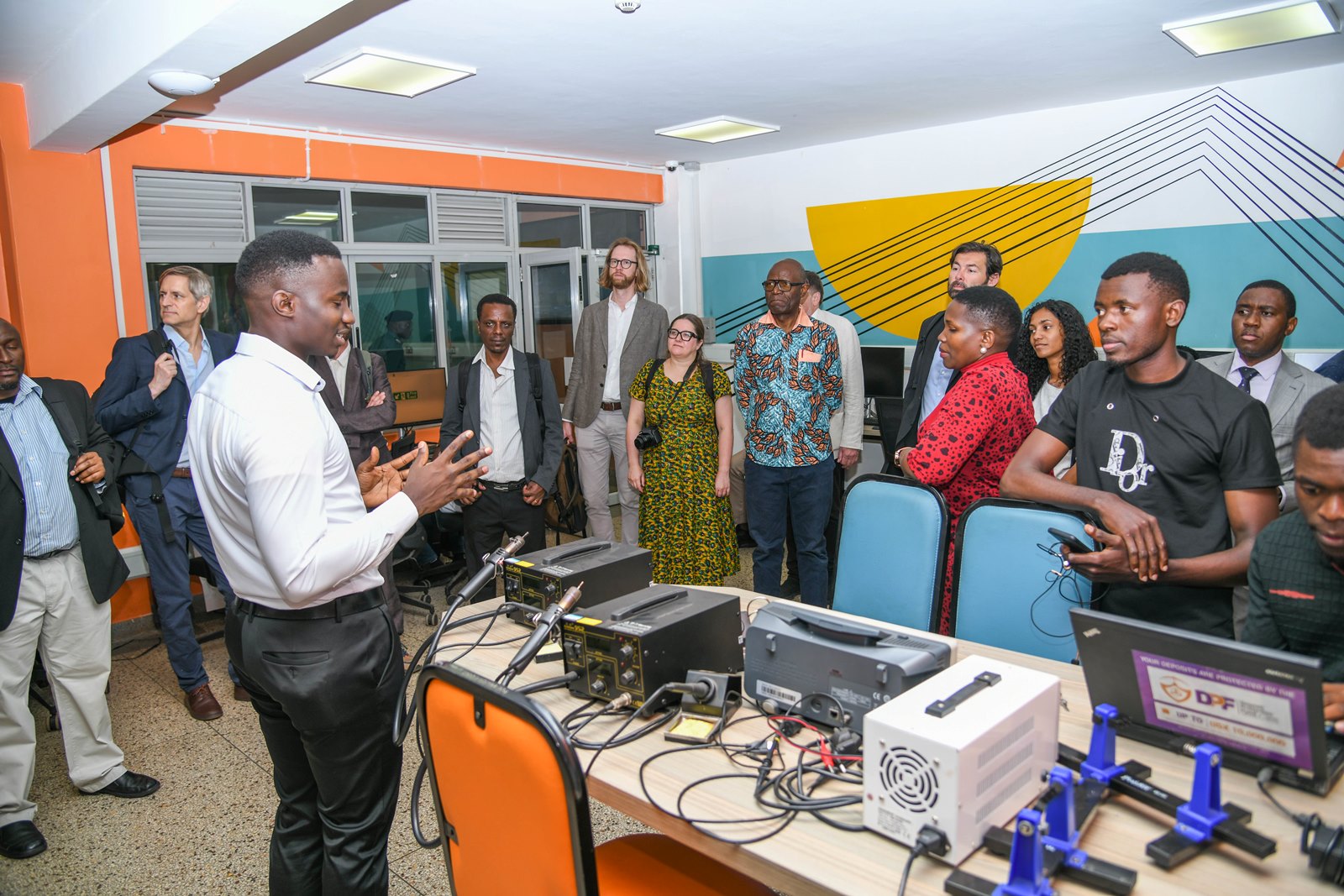
NEAR-ER delegation Courtesy meeting with the Vice Chancellor
The delegation participated in a courtesy meeting with the Vice Chancellor, Prof. Barnabas Nawangwe, who was represented by the Acting Deputy Vice Chancellor (Academic Affairs), Prof. Buyinza Mukadasi. The following University officials participated in the courtesy meeting held in the Vice Chancellor’s Board Room: Associate Prof. James Wokadala-Deputy Principal-College of Business and Management Sciences, Associate Prof. Ibrahim Mike Okumu-Dean, School of Economics, Dr. Margaret Banga-Dean, School of Statistics and Planning, and Dr. John A. Mushomi-Principal Investigator of the NEAR-Project at Makerere University.
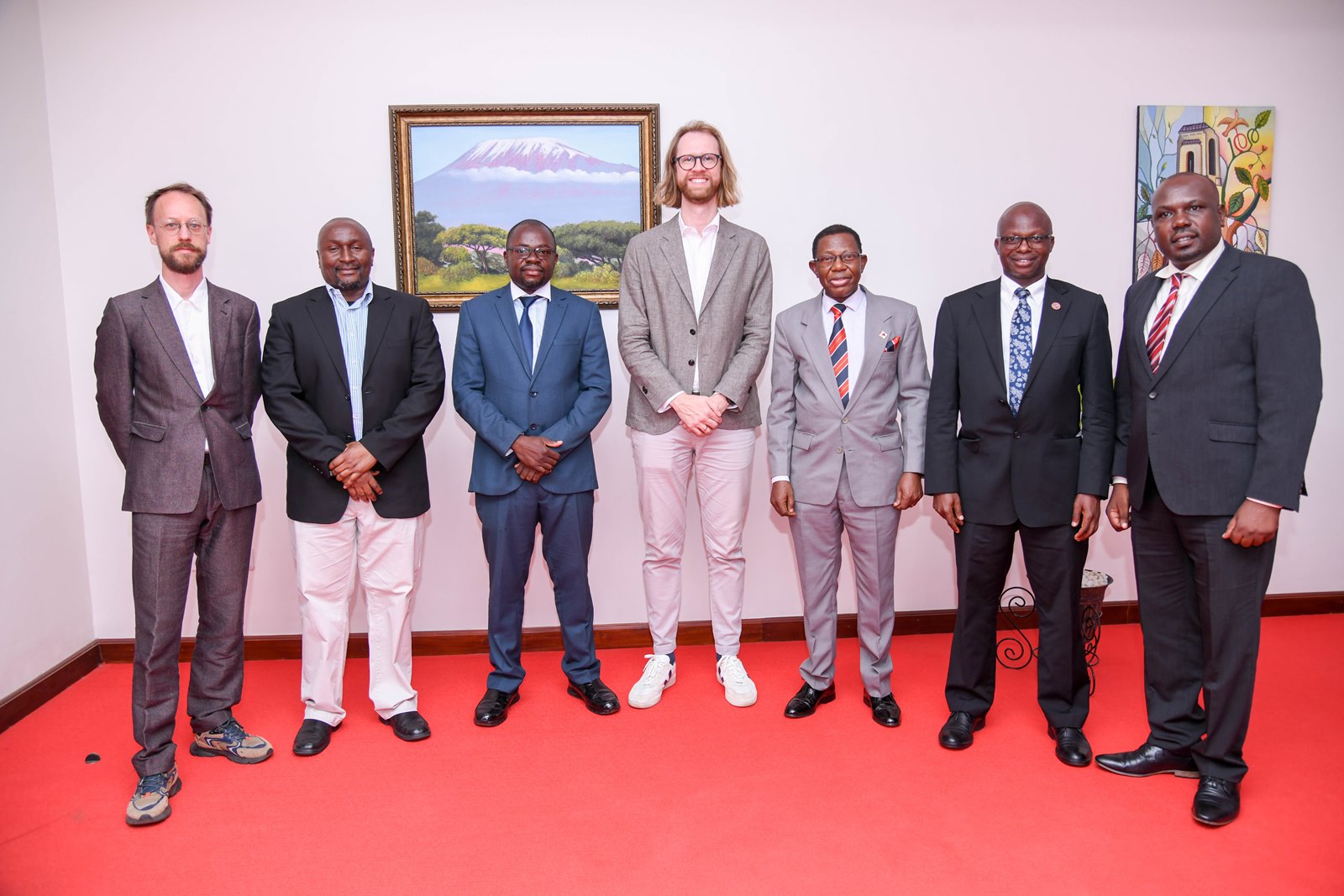
Official Opening of the NEAR-ER dialogue
Opening the NEAR-ER Dialogue on behalf of the Vice Chancellor, Prof. Barnabas Nawangwe, the Acting Deputy Vice Chancellor for Academic Affairs-Prof. Buyinza Mukadasi, underscored the significance of the event, as a defining moment in research collaboration in Africa and Europe. He emphasized that the academic convening provided a strategic platform for deep reflection, meaningful reconnection, and a renewed commitment to joint scholarship that promotes peace, shared prosperity, and inclusive development.
Prof. Buyinza Mukadasi noted that the activities of the NEAR-ER project were aligned with Makerere University’s strategic vision as well as Uganda’s national development agenda. He expressed optimism that the deliberations would spark innovative thinking, strengthen solidarity between Africa and Europe, and help shape a future rooted in shared values, mutual respect, and purposeful collaboration.
He encouraged the participants in the NEAR-ER dialogue to ensure that Africa embraces the Fourth Industrial Revolution through optimizing digitalization systems and processes. He challenged the participants to view the dialogue, as a call to action, and a catalyst for cultivating transformational African leaders equipped with relevant digital skills and employable knowledge. He stressed that the continent’s future hinged on preparing the next generation to confidently navigate and address the demands of the digital age.
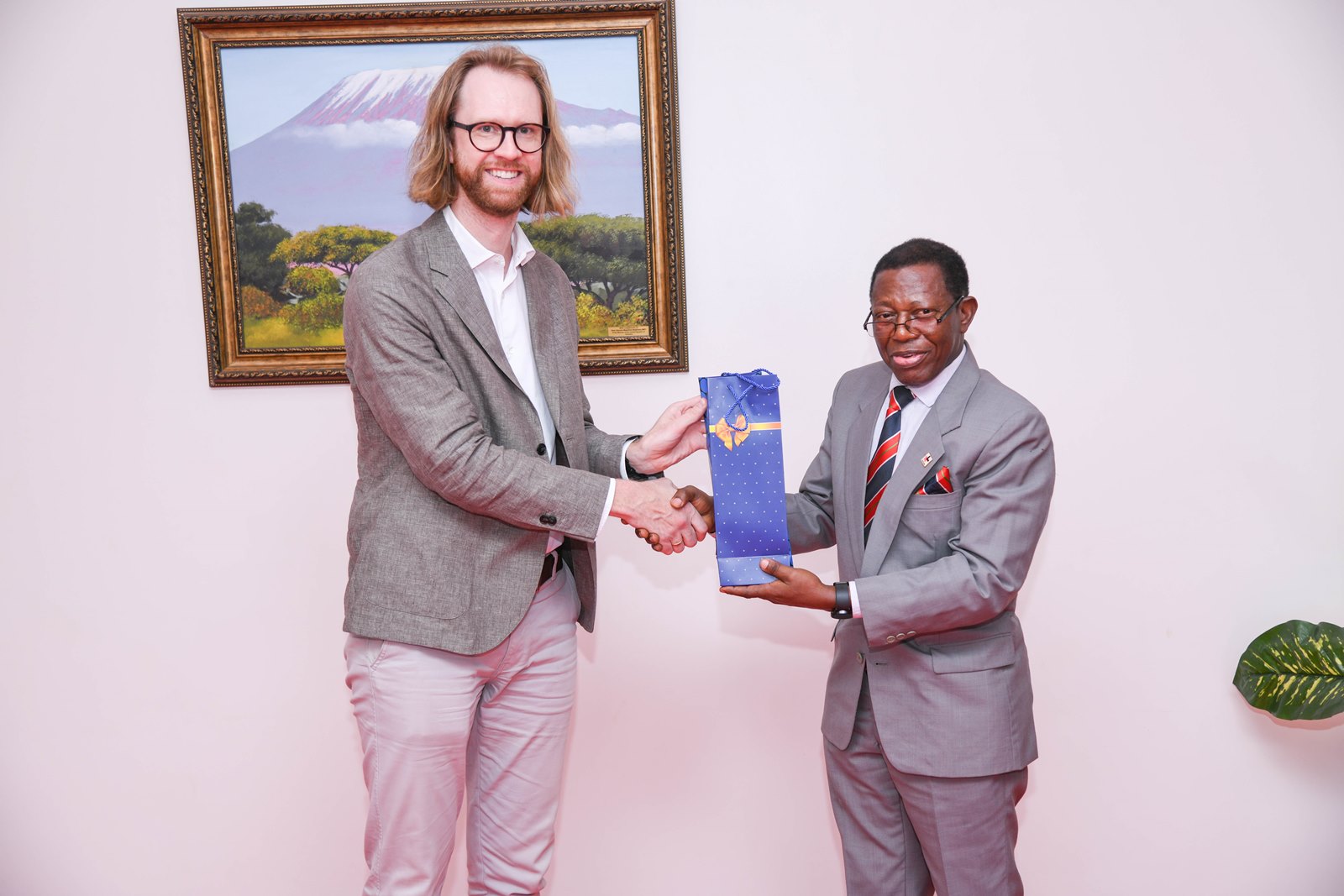
Putting across a strong case for African institutions to take on leadership in the co-production of knowledge, Prof. Buyinza Mukadasi said: “Africa’s development trajectory depends on homegrown ideas, African-led innovation, and the strategic harnessing of global partnerships to address local and global challenges.”
Highlights by the College Principal
The Principal, Prof. Edward Bbaale represented by the Deputy Principal, Associate Prof. James Wokadala, described the NEAR-ER project as a foundational moment in the redefinition of global academic cooperation from the heart of Africa. The Principal called upon the participants to utilize the dialogue to form enduring partnerships.
He underscored the College’s central role in advancing global academic collaboration, within the framework of EU-Africa partnerships in education and research. He noted that the dialogue marked a significant milestone through positioning CoBAMS as a vital conduit for strengthening cross-continental partnerships. He highlighted that the NEAR-ER network’s emphasis on education and research strongly aligned with the College’s mission to foster robust academic linkages between the Global North and South.
The Deputy Principal acknowledged CoBAMS’ unwavering dedication to advancing Makerere University’s agenda of becoming a global academic e-hub, particularly within the evolving landscape of EU-Africa relations. He reported that the College was actively undertaking strategic initiatives to deepen international engagement—initiatives designed to foster mutual learning, catalyze collaborative research, and create meaningful career development pathways.
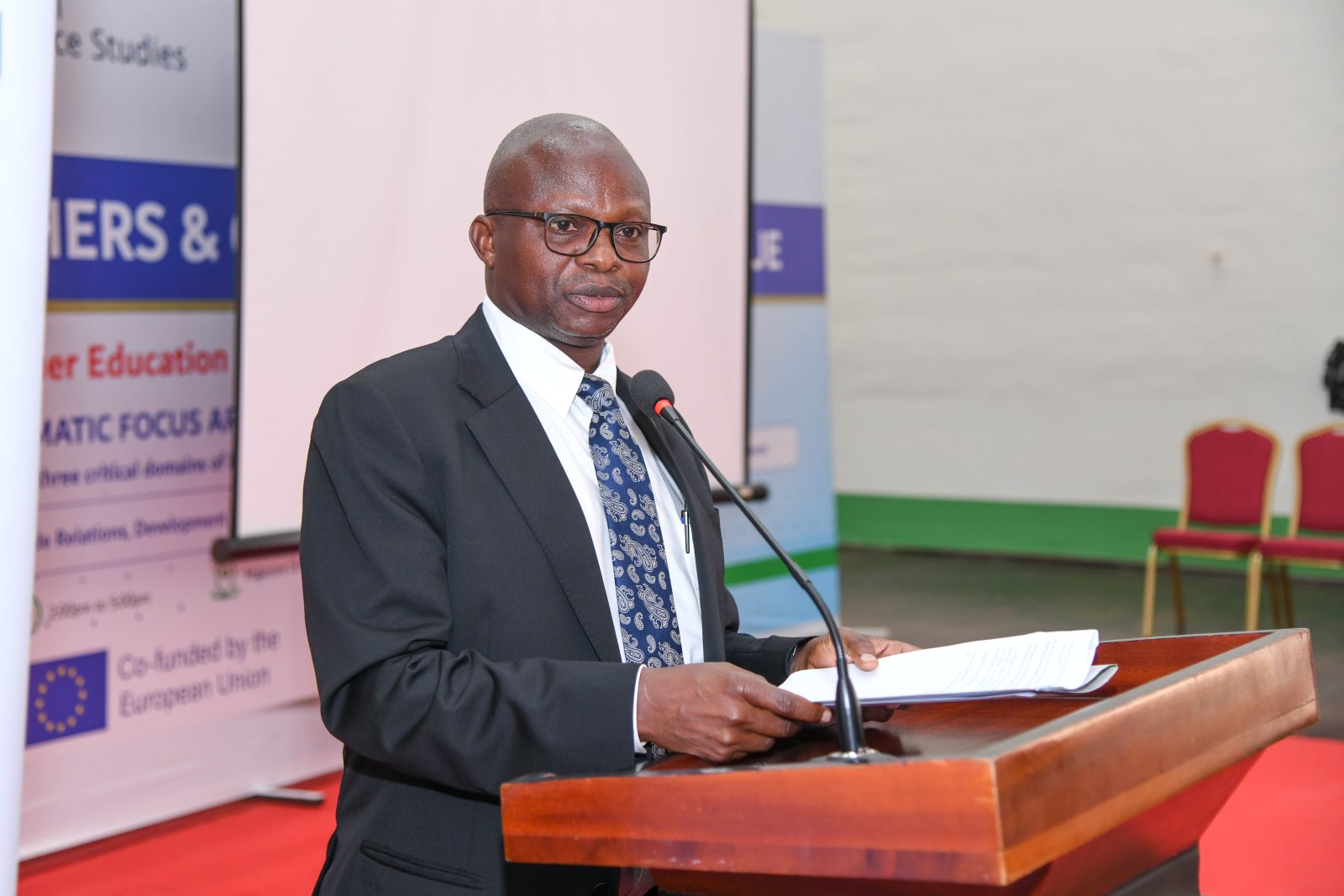
“The College leadership has prioritized supporting young researchers and postgraduate students, thus empowering the next generation of scholars to thrive in an increasingly interconnected academic ecosystem,” he said.
Highlights from the Principal Investigator
Focusing on the critical role of students in academic institutions, Dr. John A. Mushomi, the Principal Investigator of the NEAR-ER project at Makerere University, said: “Our students are our main customers. We should therefore nurture and empower our learners through global research and engagements.”
Dr. Mushomi highlighted the importance of providing a “safe engagement space” for students and researchers. Reflecting on his academic journey, and postdoctoral fellowship, he acknowledged the relevance of seeking mentorship, citing it as an instrumental step in his path to the NEAR-ER network.
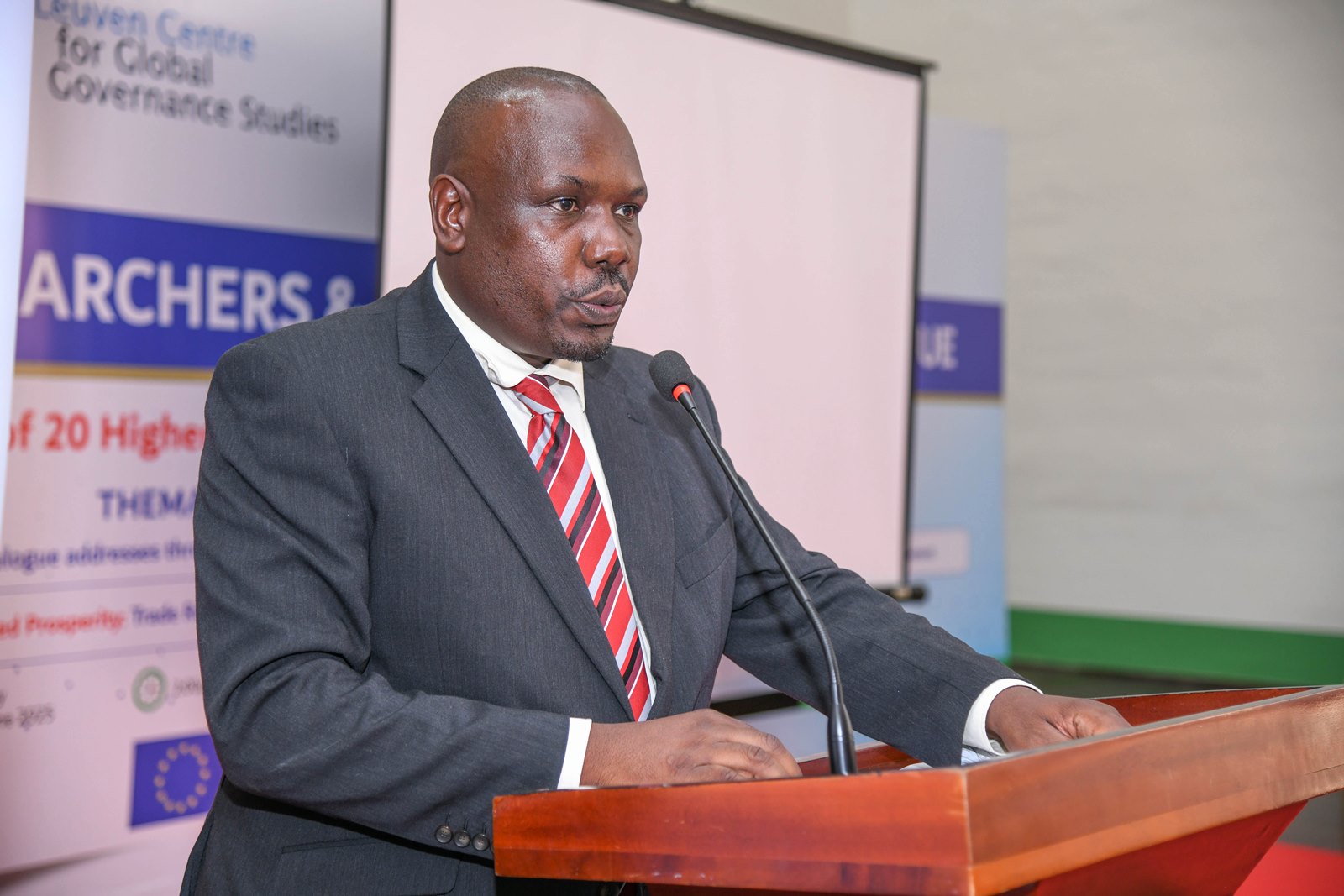
He also acknowledged the long-term collaborative efforts that led to the successful NEAR-ER grant proposal, notably involving both Makerere University and Kyambogo University.
Overview of the NEAR-ER project
Presenting the Overview of the NEAR-ER project, Prof. Muller Gustavo, a Senior Researcher at the London Centre for Global Government Studies underscored the critical importance of collaborative research and education between Europe and Africa. He noted that holding the first African convening/dialogue at Makerere University was both strategic and symbolic of the growing academic ties between the two continents.
Delving into the origins of the project, Prof. Gustavo revealed that the idea for the network was conceived approximately three years prior, where they envisioned a platform that would encourage dialogue, research, and exchange on topics central to Europe–Africa relations. They rallied scholars from diverse institutions, forming a vibrant and interdisciplinary consortium.
“Over the last three years, we put together a group of universities to foster and facilitate research and communication on relationships between Africa and Europe. The goal of the consortium is to disseminate the research and education practices, the best practices of education in Africa, in Europe, but also worldwide,” he said.
Prof. Gustavo highlighted that the NEAR-ER project will serve as a vehicle to foster best practices in education, research dissemination, and policy-relevant collaboration. He noted that the network intentionally included universities and institutions representing diverse linguistic and cultural contexts, affirming their commitment to inclusivity and comprehensive regional representation. According to Prof. Gustavo, this diversity strengthens the network’s mission to bridge educational and research gaps between the global north and south.
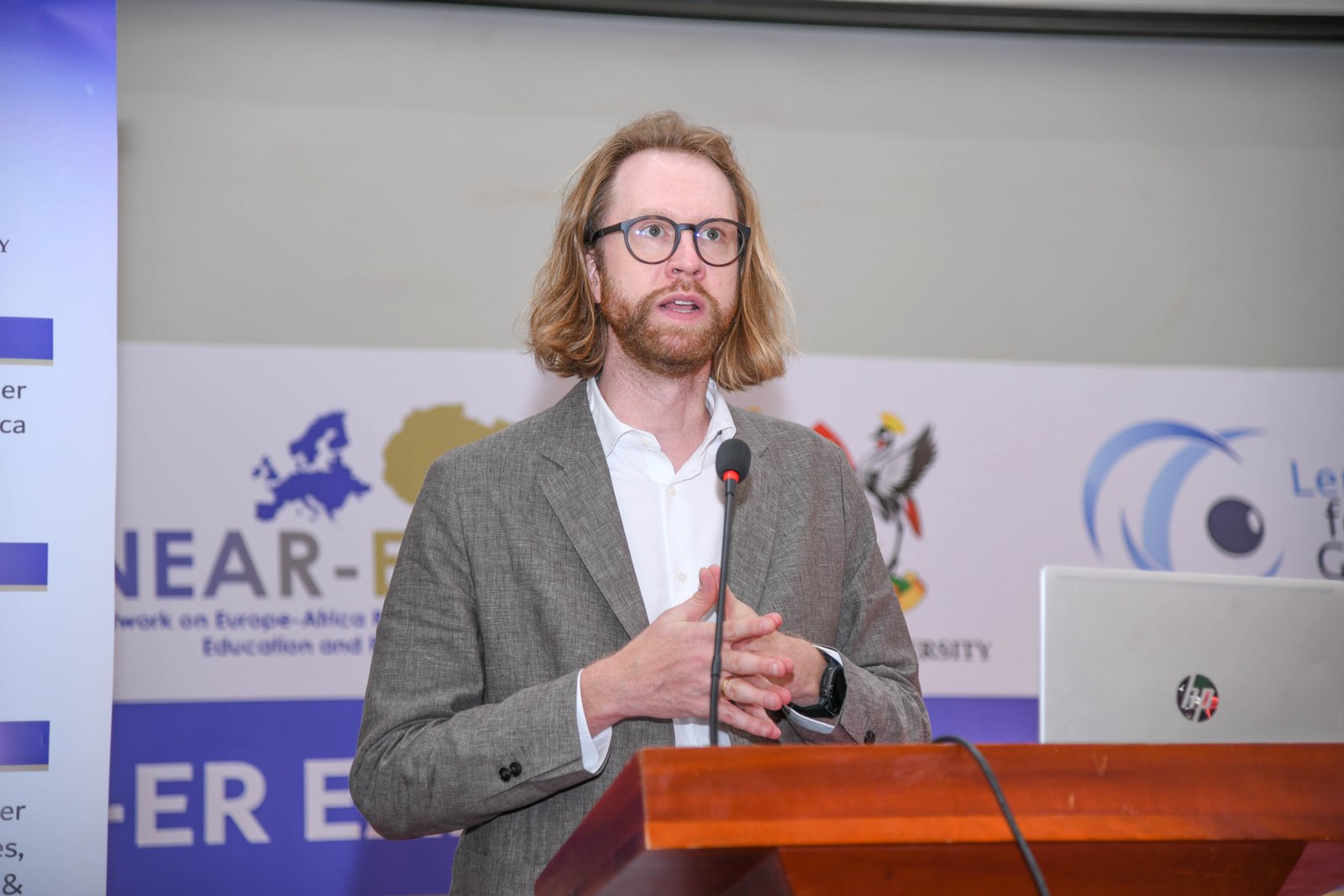
Beyond institutional collaboration, Prof. Gustavo emphasized the network’s commitment to public engagement and knowledge dissemination. He detailed a range of outputs already in motion, including research blogs, podcasts, newsletters, webinars, policy surveys, and country-specific forecasts.
Prof. Gustavo urged the students and young scholars to become active contributors to the NEAR-ER platform. He explained that the network is open to ideas from emerging voices—whether through blogs, podcasts, or other digital formats—and provides a unique opportunity for students to share perspectives and shape global discourse.
“There might be opportunities here for some of you that are interested in further increasing your knowledge on European integration, African integration, and the relationship between those two processes. You may be a student who has an idea on how to improve the relationship and looking at a particular aspect to get that idea out to the world, we can offer that destination platform for you as well,” Prof. Gustavo mentioned.
Remarks by the Dean, School of Statistics and Planning
Dr. Margaret Banga, the Dean of the School of Statistics and Planning, informed the participants, that the dialogue was a space to unite the varied disciplines and backgrounds present, all in pursuit of a shared vision for the future.
“The NEAR-ER initiative is more than a research collaboration. It is a bridge of solidarity between Europe and Africa—a platform where shared learning leads to shared solutions. It is not about the North teaching the south, but it is about learning from one another,” Dr. Banga said.
Standing as a firm believer in the transformative power of research, innovation, and youthful curiosity, Dr. Banga, underscored the importance of structure and strategy in translating ideas into impact. She encouraged the audience to treat planning as the bridge between possibility and progress. She stressed that without a clear methodology, timeline, partners, and budget, even the most brilliant ideas can fade into obscurity, but with a solid plan, those same ideas can evolve into funded projects, published policy briefs, and life-changing solutions.
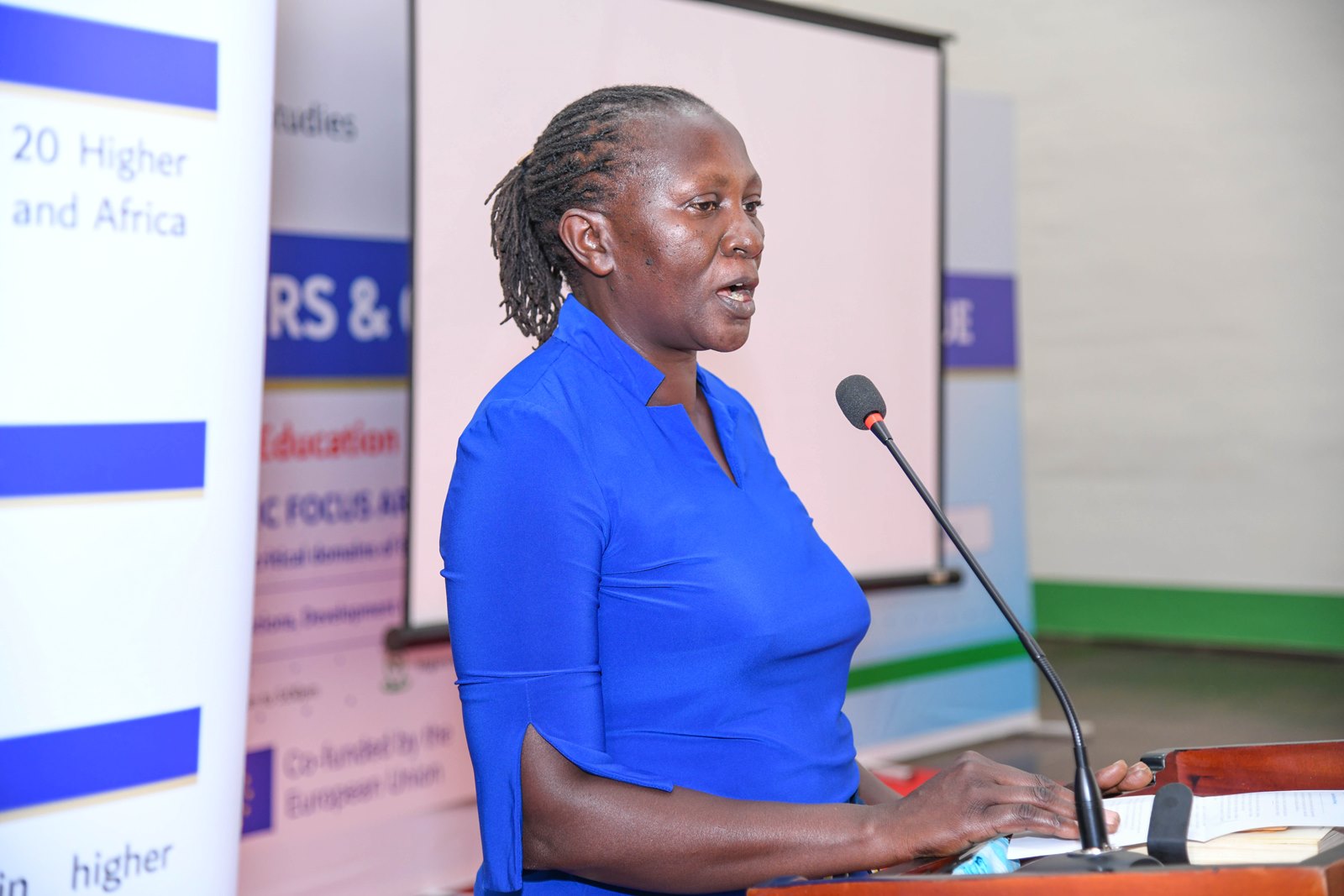
To the young scholars, Dr. Banga issued a powerful call to action. “You are the thinkers who will unlock Africa’s economy,” she said. “You are the innovators who will shape climate resilience. You are the analysts and planners who will rethink development—not as something done for us, but as something shaped by us.”
With conviction and hope, Dr. Banga reminded the young scholars that they were not mere students, but emerging leaders, and agents of change. She urged them not to wait for some future moment of “expertise” before stepping up. She offered a critical reminder that every question they pose, every network they build, and every inquiry they pursue is already shaping the world, “Your research is not small because you are just starting out, your work has the power even now to improve lives and influence generations. Don’t just study the world. Change it.”
A voice from the PhD Students
Ms. Claire Cheremoi, President of the PhD Fellows at Makerere University, expressed her appreciation for the spirit of unity and collaboration fostered by the NEAR-ER dialogue. “Our voices matter. Coming together as students is powerful,” she said.
Ms. Cheremoi emphasized the value of collective engagement, stressing that such platforms were essential in facilitating the sharing of knowledge, fostering meaningful networks, and sparking critical discussions on the issues that matter most to young scholars. She stated their commitment to engaging in conversations on research funding, interdisciplinary collaboration, and broader academic partnerships.
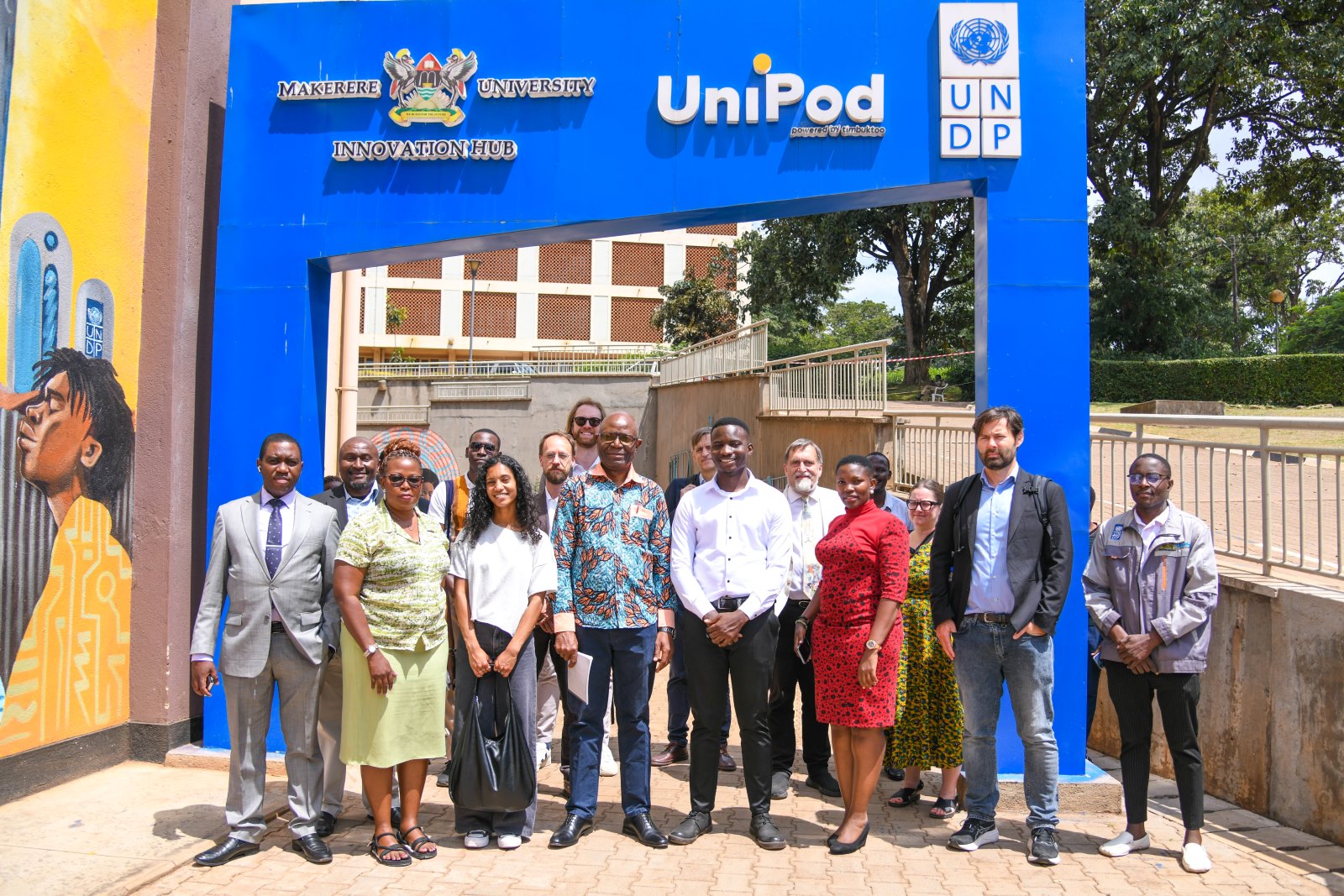
A statement from the representative of undergraduate students
Mr. Ssozi Fahad Batte, Chairperson, Students Guild Council, College of Business and Management Sciences acknowledged the students had the zeal to learn, grow, and contribute meaningfully. In his view, the most significant outcome of such dialogues was the ability to extract value—something “to take home.”
He stated the critical role of documentation, urging fellow participants to write down their ideas, strategies, and action points in order to share them beyond the event. He also highlighted the importance of networking, stressing that connections and collaborations were central to growth in academia and beyond.
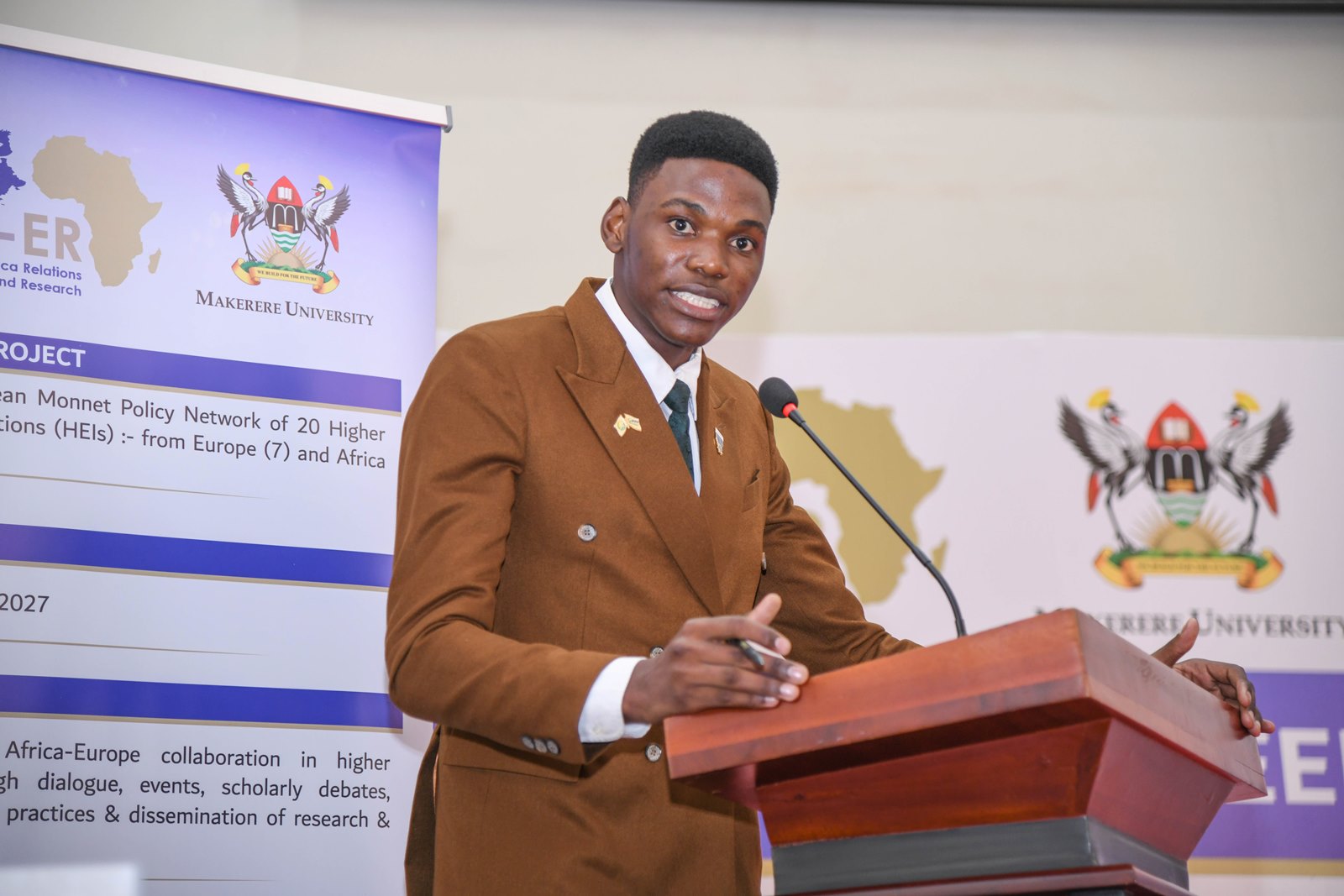
Panel discussion on Career Prospects in the EU
In a panel discussion moderated by Dr. Robert Ojambo from Kyambogo University, several international scholars shared invaluable insights on navigating academic and professional opportunities abroad—particularly for students and researchers from the Global South.
The panel discussion offered a wealth of practical insights for young scholars seeking academic and professional opportunities across borders. The panelists emphasized the importance of building trust-based networks, as well as, going beyond emails to form genuine relationships with professors, peers, and institutions.
Strategic planning emerged as a recurring theme during the panel discussion—highlighting the need to research language requirements, living costs, and cultural differences when selecting destinations. Participants encouraged scholars from the Global South to view their unique backgrounds as assets that contribute to valuable perspectives to global discourse.
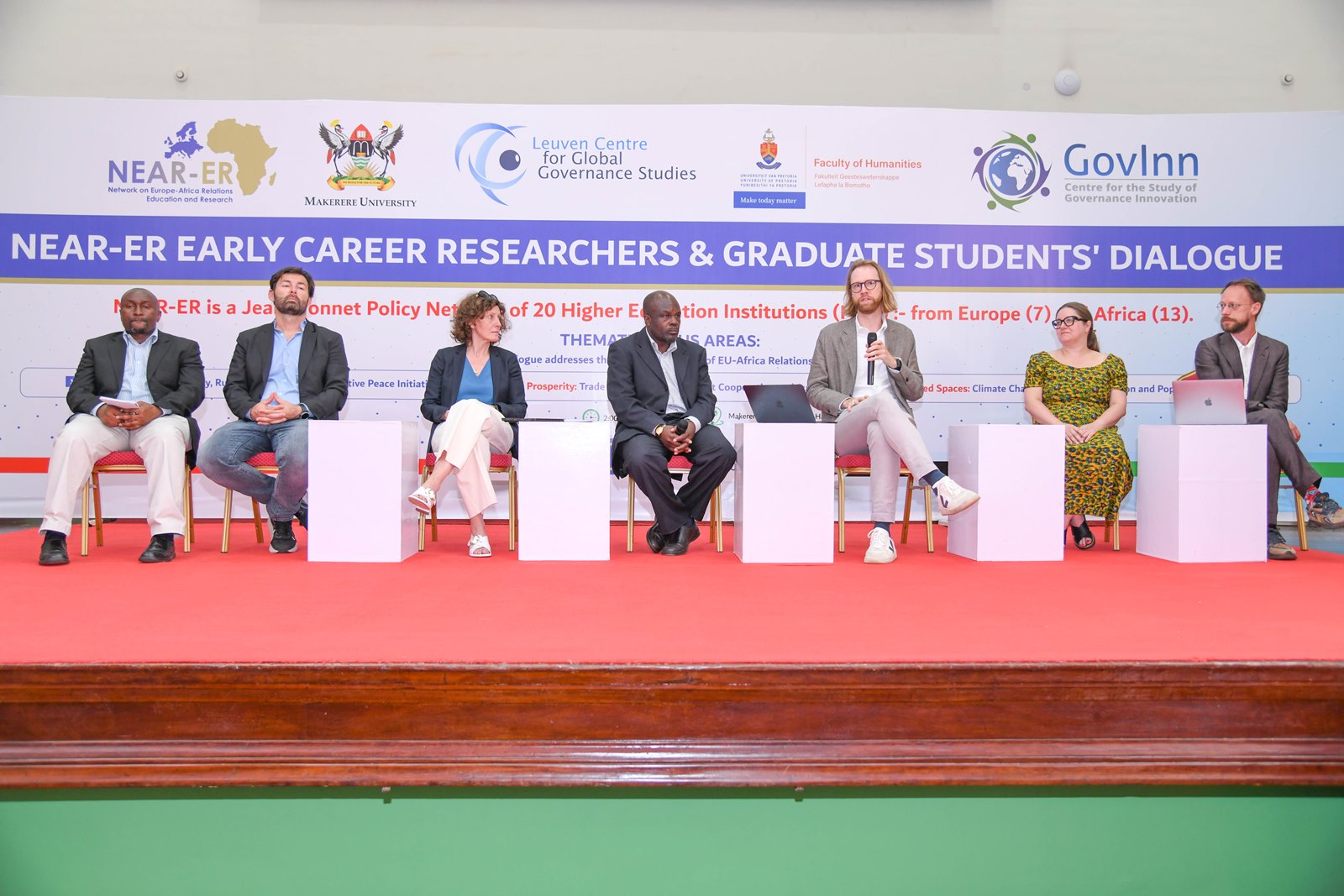
Opportunities such as Intra-Africa Academic Mobility programs, and summer schools were also presented as transformative pathways that combine education, exposure, and networking. The discussion also stressed the power of initiative—actively reaching out, applying, volunteering, and making oneself visible in digital academic spaces. Importantly, career success was linked not just to passion, but to aligning one’s skills with institutional needs and being open to unpaid roles such as voluntary service that build experience and credibility. The overall message was clear: international academic success requires preparation, adaptability, and the courage to take the first step.
As participants engaged across these thematic areas, the NEAR-ER dialogue underscored the central role of universities in bridging regions, amplifying diverse voices, and generating research-driven responses to global emergencies. The NEAR-ER dialogue held at Makerere University was not just a reflection of academic solidarity—it was a declaration of shared purpose and a call to action in re-imagining a more just, peaceful, and sustainable future across continents.
Trending
-

 Education1 day ago
Education1 day agoAdmission List to Bachelor of Education External (BED) 2025/26 -Private Sponsorship
-

 General1 week ago
General1 week agoMature Age Scheme Exam Results for 2025/2026
-

 General2 weeks ago
General2 weeks agoFreshers’ Joining Instructions 2025/2026
-

 General4 days ago
General4 days agoUndergraduate Admission List Self Sponsorship Scheme 2025/2026
-

 General2 weeks ago
General2 weeks agoMastercard Foundation Board pays its inaugural visit to Makerere University
